10 Example-Hooks for the Introduction to Climate Change College Essay
An essay is only as strong as its hook. If you can’t grab your reader’s attention right within the first few sentences, you won’t have it throughout the rest of the essay, either. Don’t bore your reader! Instead, use a captivating hook to ensnare them from the first few words.
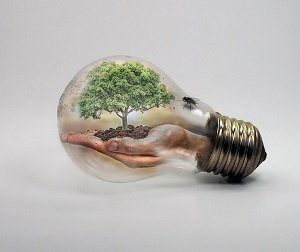
A hook can be something that is intriguing, hilarious, or even shocking. The goal of a hook is to create a powerful emotional connection with the reader. As the writer, you have a few options. You might consider beginning with a series of questions, a challenging statement, a little-known fact, a quotation, or some fascinating background information. For an essay containing an introduction to climate change, consider a few of the following hooks.

Start with a Quote
Find out a famous person who has touched the discussed issue. Make your audience mull over his/her words as well as provide their own thoughts.
- Start with a quote : “Climate change is happening, humans are causing it, and I think this is perhaps the most serious environmental issue facing us.”-Bill Nye
- Start with a quote : “Humanity faces many threats, but none is greater than climate change. In damaging our climate, we are becoming the architects of our own destruction. We have the knowledge, the tools, and the money (to solve the crisis).”-Prince Charles, U.K.
- Start with a quote : “Global warming isn’t a prediction. It is happening.”- James Hansen
Start with a Fact
Provide some interesting information about the particular issue you disclose. This will make your listeners and readers involved in the problem. Make sure the fact is on point and fresh that no one knows about.
- Start with a fact : “The planet’s average surface temperature has risen by two degrees Fahrenheit since the 1900s. This change is unrivaled by any others in recorded–or estimated–history.”
- Start with a fact : “2016 was the warmest year on record, with eight months setting record temperature highs around the globe.”
Start with a Question
Make your audience discuss the issue. This will help you not only make them interested in the problem but also present their own thoughts that might be also quite catchy to discuss.
- Start with a question : “What have you done lately to help prevent global warming?”
- Start with a question : “Think about how the weather has changed since you were a child. Has the weather gradually turned warmer? Colder? Perhaps you notice more snowfall or hotter summer temperatures. These are all caused directly by climate change and global warming.”
- Start with a question : “How does climate change affect you personally?”
Shock Your Audience
Tell something that will shock your audience. It will make them interested. But again, this has to be a real shock, not something that everyone is talking about for the last three years.
- Start with a shock : “Global sea levels have risen eight inches over the last century. In the last two decades alone, the rate of rise has nearly doubled. This is a direct cause of melting ice caps and increased global temperatures. If this rise continues, entire countries, such as Bangladesh, could be underwater.”
- Start with a shock : “If everyone in the world lives as Americans do, it would take five Earths to produce enough resources. Just five countries, including the United States, contribute to more than 50 percent of the world’s harmful CO2 emissions.”
What do all of these hooks have in common? They tell you just enough information to get you interested but want to learn more at the same time. It is often difficult to write a stellar hook until you have already–or nearly–finished writing your essay. After all, you often don’t know the direction your paper is going to take until it is completed. Many strong writers wait to write the hook last, as this helps guide the direction of the introduction. Consider drafting a few sample hooks and then choose the best. The best essay will be the one that involves revision and updating–keep trying new hooks until you find the perfect, most intriguing, hook of them all.
Our statistics
Climate Change Essay for Students and Children
500+ words climate change essay.
Climate change refers to the change in the environmental conditions of the earth. This happens due to many internal and external factors. The climatic change has become a global concern over the last few decades. Besides, these climatic changes affect life on the earth in various ways. These climatic changes are having various impacts on the ecosystem and ecology. Due to these changes, a number of species of plants and animals have gone extinct.

When Did it Start?
The climate started changing a long time ago due to human activities but we came to know about it in the last century. During the last century, we started noticing the climatic change and its effect on human life. We started researching on climate change and came to know that the earth temperature is rising due to a phenomenon called the greenhouse effect. The warming up of earth surface causes many ozone depletion, affect our agriculture , water supply, transportation, and several other problems.
Reason Of Climate Change
Although there are hundreds of reason for the climatic change we are only going to discuss the natural and manmade (human) reasons.
Get the huge list of more than 500 Essay Topics and Ideas
Natural Reasons
These include volcanic eruption , solar radiation, tectonic plate movement, orbital variations. Due to these activities, the geographical condition of an area become quite harmful for life to survive. Also, these activities raise the temperature of the earth to a great extent causing an imbalance in nature.
Human Reasons
Man due to his need and greed has done many activities that not only harm the environment but himself too. Many plant and animal species go extinct due to human activity. Human activities that harm the climate include deforestation, using fossil fuel , industrial waste , a different type of pollution and many more. All these things damage the climate and ecosystem very badly. And many species of animals and birds got extinct or on a verge of extinction due to hunting.
Effects Of Climatic Change
These climatic changes have a negative impact on the environment. The ocean level is rising, glaciers are melting, CO2 in the air is increasing, forest and wildlife are declining, and water life is also getting disturbed due to climatic changes. Apart from that, it is calculated that if this change keeps on going then many species of plants and animals will get extinct. And there will be a heavy loss to the environment.
What will be Future?
If we do not do anything and things continue to go on like right now then a day in future will come when humans will become extinct from the surface of the earth. But instead of neglecting these problems we start acting on then we can save the earth and our future.

Although humans mistake has caused great damage to the climate and ecosystem. But, it is not late to start again and try to undo what we have done until now to damage the environment. And if every human start contributing to the environment then we can be sure of our existence in the future.
{ “@context”: “https://schema.org”, “@type”: “FAQPage”, “mainEntity”: [ { “@type”: “Question”, “name”: “What is climate change and how it affects humans?”, “acceptedAnswer”: { “@type”: “Answer”, “text”: “Climate change is a phenomenon that happens because of human and natural reasons. And it is one of the most serious problems that not only affect the environment but also human beings. It affects human in several ways but in simple language, we can say that it causes many diseases and disasters that destroy life on earth.” } }, { “@type”: “Question”, “name”: “Can we stop these climatic changes?”, “acceptedAnswer”: { “@type”: “Answer”, “text”: “Yes, we can stop these climatic changes but for that, every one of us has to come forward and has to adapt ways that can reduce and control our bad habits that affect the environment. We have to the initiative and make everyone aware of the climatic changes.” } } ] }
Customize your course in 30 seconds
Which class are you in.

- Travelling Essay
- Picnic Essay
- Our Country Essay
- My Parents Essay
- Essay on Favourite Personality
- Essay on Memorable Day of My Life
- Essay on Knowledge is Power
- Essay on Gurpurab
- Essay on My Favourite Season
- Essay on Types of Sports
Leave a Reply Cancel reply
Your email address will not be published. Required fields are marked *
Download the App

Home — Essay Samples — Environment — Environment Problems — Climate Change
Essays on Climate Change
Climate change: essay topics for college students.
Welcome to our resource page designed for college students seeking inspiration for their climate change essays. The choice of topic is a crucial first step in the writing process, reflecting your personal interests and creativity. This page aims to guide you through selecting a compelling essay topic that not only captivates your interest but also challenges you to think critically and analytically.
Depending on your assignment requirements or personal preference, essays can be categorized into several types. Below, you will find a variety of climate change essay topics categorized by essay type. Each topic is accompanied by an introductory paragraph example, highlighting a clear thesis statement, and a conclusion paragraph example that summarizes the essay's main points and reiterates the thesis.
Argumentative Essays
- Topic: The Effectiveness of International Agreements in Combating Climate Change
- Thesis Statement: International agreements, though crucial, are not sufficiently effective in combating climate change without enforceable commitments.
Conclusion Example: In summarizing, international agreements provide a framework for climate action but lack the enforcement necessary for real change. To combat climate change effectively, these agreements must be accompanied by binding commitments that ensure countries adhere to their promises, underscoring the need for a more robust global enforcement mechanism.
Compare and Contrast Essays
- Topic: Renewable Energy Sources vs. Fossil Fuels: A Comparative Analysis
- Thesis Statement: Renewable energy sources, despite higher initial costs, are more environmentally sustainable and cost-effective in the long run compared to fossil fuels.
Conclusion Example: Through this comparative analysis, it is clear that renewable energy sources offer a more sustainable and cost-effective solution to powering our world than fossil fuels. Embracing renewables not only mitigates the impact of climate change but also secures a sustainable energy future.
Descriptive Essays
- Topic: The Impact of Climate Change on Coral Reefs
- Thesis Statement: Climate change poses a severe threat to coral reefs, leading to bleaching events, habitat loss, and a decline in marine biodiversity.
Conclusion Example: The devastation of coral reefs is a stark reminder of the broader impacts of climate change on marine ecosystems. Protecting these vital habitats requires immediate action to mitigate the effects of climate change and preserve marine biodiversity for future generations.
Persuasive Essays
- Topic: The Role of Individual Actions in Mitigating Climate Change
- Thesis Statement: Individual actions, when collectively embraced, can drive significant environmental change and are essential in the fight against climate change.
Conclusion Example: In conclusion, the cumulative effect of individual actions can make a substantial difference in addressing climate change. By adopting more sustainable lifestyles, individuals can contribute to a larger movement towards environmental stewardship and climate action.
Narrative Essays
- Topic: A Personal Journey Towards Sustainable Living
- Thesis Statement: Through personal commitment to sustainable living, individuals can contribute meaningfully to mitigating climate change while discovering the intrinsic rewards of a simpler, more purposeful lifestyle.
Conclusion Example: This journey towards sustainable living has not only contributed to climate action but has also offered a deeper appreciation for the importance of individual choices. As more people embark on similar journeys, the collective impact on our planet can be transformative.
We encourage you to select a topic that resonates with your personal interests and academic goals. Dive deep into your chosen subject, employ critical thinking, and let your creativity flow as you explore different perspectives and solutions to climate change. Remember, the best essays are not only informative but also engaging and thought-provoking.
Writing on these topics will not only enhance your understanding of climate change and its implications but also develop your skills in research, critical thinking, persuasive writing, and narrative storytelling. Each essay type offers a unique opportunity to explore different facets of the climate crisis, encouraging you to engage with the material in a meaningful way.
Hooks for Climate Change Essay
Climate change is not just an environmental issue; it is a pressing global crisis that affects every aspect of our lives. From melting polar ice caps to rising sea levels, the signs of climate change are everywhere, and they are impossible to ignore.
- Imagine a world where natural disasters are a daily occurrence. This is not a dystopian future; it is the reality we face if we do not address climate change now.
- Have you ever wondered why the summers seem hotter and the winters milder? The answer lies in the alarming acceleration of climate change.
- Picture your favorite coastal city submerged under water. This scenario is closer than you think due to the rapid rise in sea levels.
- What if I told you that climate change could lead to the extinction of over one million species by 2050? The clock is ticking for our planet's biodiversity.
- Every time you turn on a light or drive your car, you contribute to a global problem. Understanding the personal impact of climate change is the first step towards meaningful action.
Climate Change Outline Essay Examples
Example 1: causes and effects of climate change, introduction.
Introduce the topic of climate change, its significance, and provide a thesis statement outlining the main points.
Greenhouse Gas Emissions
- Deforestation
Industrial Activities
Urbanization
Rising Sea Levels
Extreme Weather Events
Loss of Biodiversity
Impact on Human Health
Renewable Energy Sources
Afforestation and Reforestation
Policy and Legislation
Public Awareness and Education
Summarize the main points, restate the significance of addressing climate change, and provide a call to action for individuals and policymakers.
Example 2: The Impact of Climate Change on Global Ecosystems
Introduce the importance of ecosystems and how they are threatened by climate change. Provide a thesis statement outlining the main areas of focus.
Coral Bleaching
Ocean Acidification
Disruption of Marine Food Chains
Forest Degradation
Changes in Wildlife Migration Patterns
Alteration of Plant Growth Cycles
Glacial Melt and Reduced Snowpack
Changes in Water Quality
Disruption of Aquatic Species Habitats
Summarize the impacts of climate change on different ecosystems, emphasize the interconnectedness of these systems, and highlight the need for comprehensive conservation efforts.
Example 3: The Role of Policy in Combating Climate Change
Introduce the role of policy in addressing climate change, and provide a thesis statement highlighting the importance of governmental and international efforts.
Renewable Energy Incentives
Carbon Pricing
Regulations on Emissions
Paris Agreement
Kyoto Protocol
UN Climate Change Conferences (COP)
Economic and Political Barriers
Technological Innovations
Public and Private Sector Collaboration
Summarize the role of policy in combating climate change, discuss the need for robust and enforceable policies, and call for increased global cooperation and commitment.
Climate Change Solutions: Navigating Toward a Sustainable Future
The causes and effects of climate change: a comprehensive analysis, made-to-order essay as fast as you need it.
Each essay is customized to cater to your unique preferences
+ experts online
150-word on Global Warming
The global environmental issues: climate change, pollution and natural resources, climate change in the 21st century: a global health crisis, climate change: issues and strategy to mitigate it, let us write you an essay from scratch.
- 450+ experts on 30 subjects ready to help
- Custom essay delivered in as few as 3 hours
How Global Warming Changed Earth's Environment
Analysis of the possible causes of climate change, climate change as a serious threat, global warming and what people can do to save earth, get a personalized essay in under 3 hours.
Expert-written essays crafted with your exact needs in mind
Mother Nature and Climate Change: We Must Take Action
Climate change: a rhetorical perspective, the global problem of co2 emission and its possible solution, impact of the youth climate movement on climate change, the impact of global warming on climate change, climate change and business and government initiatives, impact of climate change on british columbia's biodiversity, the top three individual contributors to climate change, the issue of climate change in african countries, climate change: greenhouse effect, the crucial importance of addressing climate change, climate change and the australian fires, climate changes: emission of greenhouse gases, human & nature contribution, worsening california's wildfires: climate change, climate change as the one of the biggest threats to humanity now, analysis on climate change and the deterioration of the environment, greenhouse gases and climate change, investigation of the consequences of climate change, india's efforts towards mitigating climate change, the importance of climate change education.
Climate change refers to long-term changes in the Earth's climate, including rising temperatures, shifting weather patterns, and more severe natural disasters.
The historical context of climate change spans centuries. The Industrial Revolution in the 18th century marked increased fossil fuel use, releasing significant greenhouse gases. By the late 19th century, scientists like Svante Arrhenius linked carbon dioxide to Earth's temperature. Climate change gained attention in the mid-20th century, with the 1958 Keeling Curve showing rising CO2 levels. Key events include the 1988 establishment of the IPCC, the 1992 UNFCCC, the 1997 Kyoto Protocol, and the 2015 Paris Agreement.
- Greenhouse gas emissions: The burning of fossil fuels, such as coal, oil, and natural gas, releases carbon dioxide (CO2), methane (CH4), and nitrous oxide (N2O) into the atmosphere, trapping heat and contributing to global warming.
- Industrial activities: Industrial processes, including manufacturing, construction, and chemical production, release CO2 and other greenhouse gases through energy consumption and the use of certain chemicals.
- Agricultural practices: Livestock farming produces methane through enteric fermentation and manure management, while the use of synthetic fertilizers releases nitrous oxide.
- Land use changes: Converting land for agriculture, urban development, or other purposes alters natural ecosystems and contributes to the release of CO2 and other greenhouse gases.
- Waste management: Improper handling and decomposition of organic waste in landfills produce methane, a potent greenhouse gas.
- Rising temperatures: Global warming leads to increased average temperatures worldwide, resulting in heatwaves, melting glaciers and polar ice, and rising sea levels.
- Extreme weather events: Climate change intensifies extreme weather events such as hurricanes, droughts, floods, and wildfires, leading to devastating impacts on ecosystems, communities, and infrastructure.
- Disruption of ecosystems: Changes in temperature and precipitation patterns disrupt ecosystems, affecting biodiversity, migration patterns, and the survival of plant and animal species.
- Health impacts: Climate change contributes to the spread of diseases, heat-related illnesses, and respiratory problems due to increased air pollution and the expansion of disease vectors.
- Water scarcity: Changing climate patterns can alter rainfall patterns, causing water scarcity in certain regions, affecting agriculture, drinking water supplies, and ecosystems that depend on water sources.
Transitioning to renewable energy sources like solar, wind, and hydropower, along with improving energy efficiency in industries and buildings, can significantly reduce greenhouse gas emissions. Promoting electric vehicles, public transportation, and biking infrastructure further cuts emissions. Forest conservation and reforestation help absorb carbon dioxide, while sustainable agriculture practices reduce emissions and improve soil health. Embracing a circular economy reduces waste, and strong climate policies alongside public awareness drive collective action against climate change.
- The levels of carbon dioxide (CO2) in the Earth's atmosphere are currently higher than any recorded in the past 800,000 years. According to data from ice core samples, pre-industrial CO2 levels averaged around 280 parts per million (ppm), while current levels have exceeded 410 ppm.
- The Earth's average temperature has increased by about 1 degree Celsius since the late 19th century.
- The Arctic region is warming at a faster pace than any other part of the planet.
- Human activities, such as burning fossil fuels and deforestation, are major contributors to climate change.
- Climate change is also affecting wildlife, with many species facing extinction due to habitat loss.
Climate change is a critical issue that affects all aspects of our lives, from the environment to the economy. It poses a threat to biodiversity, food security, and human health. Addressing climate change requires global cooperation and immediate action to reduce greenhouse gas emissions and mitigate its impacts. By raising awareness and taking steps to combat climate change, we can protect the planet for future generations.
1. Intergovernmental Panel on Climate Change. (2018). Global warming of 1.5°C. Retrieved from https://www.ipcc.ch/sr15/ 2. National Aeronautics and Space Administration. (n.d.). Climate change: How do we know? Retrieved from https://climate.nasa.gov/evidence/ 3. United Nations Framework Convention on Climate Change. (2015). Paris Agreement. Retrieved from https://unfccc.int/process-and-meetings/the-paris-agreement/the-paris-agreement 4. World Health Organization. (2018). Climate change and health. Retrieved from https://www.who.int/news-room/fact-sheets/detail/climate-change-and-health 5. Environmental Protection Agency. (2021). Climate change indicators: Atmospheric concentrations of greenhouse gases. Retrieved from https://www.epa.gov/climate-indicators/greenhouse-gases 6. United Nations Environment Programme. (2020). Emissions gap report 2020. Retrieved from https://www.unep.org/emissions-gap-report-2020 7. Stern, N. (2007). The economics of climate change: The Stern Review. Cambridge University Press. 8. Intergovernmental Science-Policy Platform on Biodiversity and Ecosystem Services. (2019). Summary for policymakers of the global assessment report on biodiversity and ecosystem services. Retrieved from https://ipbes.net/sites/default/files/2020-02/ipbes_global_assessment_report_summary_for_policymakers_en.pdf 9. World Meteorological Organization. (2021). State of the global climate 2020. Retrieved from https://library.wmo.int/doc_num.php?explnum_id=10739 10. Cook, J., Oreskes, N., Doran, P. T., Anderegg, W. R., Verheggen, B., Maibach, E. W., ... & Nuccitelli, D. (2016). Consensus on consensus: A synthesis of consensus estimates on human-caused global warming. Environmental Research Letters, 11(4), 048002. doi:10.1088/1748-9326/11/4/048002
Relevant topics
- Global Warming
- Ocean Pollution
- Natural Disasters
- Fast Fashion
- Air Pollution
- Water Pollution
By clicking “Check Writers’ Offers”, you agree to our terms of service and privacy policy . We’ll occasionally send you promo and account related email
No need to pay just yet!
Bibliography
We use cookies to personalyze your web-site experience. By continuing we’ll assume you board with our cookie policy .
- Instructions Followed To The Letter
- Deadlines Met At Every Stage
- Unique And Plagiarism Free
- Dissertation
- PowerPoint Presentation
- Book Report/Review
- Research Proposal
- Math Problems
- Proofreading
- Movie Review
- Cover Letter Writing
- Personal Statement
- Nursing Paper
- Argumentative Essay
- Research Paper
- Discussion Board Post
Steps To Follow While Writing An Essay On Climate Change

Table of Contents

Climate change is the most essential issue of our generation; we are the first to witness its early signs and the last who have a chance of stopping them from happening.
Living in a bubble of denial can only get us this far; the planet which is our home is already a scene for melting glaciers, raising floods, extinction of species… the list goes on and on. Spreading awareness on matters of climate change through any means available, including as seemingly trivial form as writing a school essay, cannot be underestimated.
Follow the guidelines suggested in the paragraphs below to learn how to create a perfect essay that will get you an appraisal of your teacher.
Essay on climate changes: how to write?
If you really want to make your teacher gasp while they are reading your work, there are three vital things to pay attention to .
First of all, read the topic carefully and understand it’s specific, i.e., what is expected from you.
For instance, if it is the role of individuals in helping prevent climate change, you should not focus so much on the global problems, but speak about how small changes all of us can introduce in our routines will eventually have a positive environmental effect.
Secondly, determine your personal take on the problem . Search for materials on your subject using keywords, and pile up the evidence that supports your point of view.
Finally, write a conclusion. Make sure that the conclusion you make reflects the viewpoints you have been expressing all throughout your essay.
Below you will find a more detailed breakdown of tasks you will have to accomplish to complete writing an essay on climate changes that is worthy of a top mark.
Check if it is an argumentative essay on climate change or more of a speculative one? Arrange your writing accordingly.
- Craft the outline and don’t go off-topic.
- Search for keywords .
- Make a plan .
- Avoid the most common mistakes from the start.
- Write an introduction thinking about what you will write later.
- Develop your ideas according to the outline .
- Make a conclusion which is consistent with what you’ve written in the main paragraphs.
- Proofread the draft , correct mistakes and print out the hard copy. All set!
One of the most focal of your writing will be factual evidence. When writing on climate change, resort to providing data shared by international organizations like IPCC , WWF , or World Bank .
It is undeniable that among the main causes of climate change, unfortunately, there are oil and fossil fuels that are the basis of the whole economy and still invaluable sources of energy.
Although everyone knows that oil resources are polluting and that it would be much more useful and environmentally sustainable to rely on renewable energies such as wind and solar energies and electricity, the power of the world seem not to notice or pretend not to see for don’t go against your own interests.
The time has come to react and raise awareness of the use of renewable energy sources.
In addition to the causes already mentioned, we must consider the increase in the carbon dioxide air that traps heat in our atmosphere, thus increasing the temperatures with the consequent of the Arctic glaciers melting.
WWF reported that in 2016, the recorded data was quite worrying with a constant increase in temperatures and a 40% decrease in Arctic marine glaciers.
Topics for essay on global warming and climate change
If you do not have any specific topic to write on, consider yourself lucky. You can pick one that you are passionate about – and in fact, this is what you should do! If we think back to the very definition of essay, it is nothing more than a few paragraphs of expressing one’s personal attitude and viewpoints on a certain subject. Surely, you need to pick a subject that you are opinionated about to deliver a readable piece of writing!
Another point to consider is quaintness and topicality factors. You don’t want to end up writing on a subject that the rest of your class will, and in all honesty, that has zero novelty to it.
Even if it is something as trivial as the greenhouse effect, add an unexpected perspective to it: the greenhouse effect from the standpoint of the feline population of Montenegro. Sounds lunatic, but you get the drift.
Do not worry, below you will find the list of legitimately coverable topics to choose from:
- The last generation able to fight the global crisis.
- Climate change: top 10 unexpected causes.
- Climate changes. Things anyone can do.
- Climate changes concern everyone. Is it true?
- The Mauna Loa volcano: climate change is here.
- Water pollution and coastal cities: what needs to be done?
- Is there global warming if it’s still cold?
- The CO2 concentration in the atmosphere.
- Celebrity activists and climate changes.
- Individual responsibility for the environment.
- How the loss of biodiversity is the biggest loss for humanity.
- Ways to fight global warming at home.
- Sustainable living as a way of fighting climate change.
- Climate change fighting countries to look up to.
- Industrial responsibility and climate change.
- What future will be like if we fail to make an environmental stand?
- Discovering water on Mars: a new planet to live on?
- Climate change effects on poor countries.
- Nuclear power laws and climate change.
- Is it true that climate change is caused by man?
Mistakes to avoid when writing an essay on climate change
When composing your essay, you must avoid the following (quite common!) mistakes:
- Clichés – no one wants to read universal truths presented as relevant discoveries.
- Repeating an idea already expressed – don’t waste your readers’ time .
- Making an accumulation of ideas that are not connected and that do not follow one another; structure your ideas logically .
- Being contradictive (check consistency).
- Using bad or tired collocations .
- Using lackluster adjectives like “good”/”bad”. Instead, think of more eye-catching synonyms.
Structure your essay in a logical way : introduce your thesis, develop your ideas in at least 2 parts that contain several paragraphs, and draw a conclusion.
Bottom line
Writing an essay on global warming and climate change is essentially reflecting on the inevitable consequence of the irresponsible behavior of people inhabiting the planet. Outside of big-scale thinking, there is something each of us can do, and by shaping minds the right way, essential change can be done daily.
Each of us can act to protect the environment, reducing the use of plastic, recycling, buying food with as little packaging as possible, or turning off water and light when not in use. Every little help, even a short essay on climate change can help make a difference.
Can’t wait to save the planet? Do it, while we write your essay. Easy order, complete confidentiality, timely delivery. Click the button to learn more!

Ideas on writing an excellent Baseball essay

Writing A Perfect Essay About Favorite Food

80 Great Compelling Argumentative Research Topics

Environment
How to write the perfect essay on climate change.
Writing an essay on green living or other environmental issues can be difficult. You need to make sure that you get your points right. One of the issues is that environmental research is changing at a breathtaking pace, so it is easy to use outdated data to make your point.
Creating the Perfect Essay on Climate Change or Any Environmental Topic
Essay writing is a task which poses an immense challenge to many students. This is because it not only has many requirements, but also requires one to have professional writing skills to produce a top-notch paper. This is especially complicated for climate change papers.
Additionally, many students find it hard to distinguish the type of paper they are writing. Hence, they end up producing the wrong article. Environmental science professors and instructors often give college and university students writing assignments.
You can always hire a professional paper writer to help you. However, you will learn more if you go through the process on your own. But how can you write a paper easily with limited time as a student?
You need to be familiar with the concepts behind climate change if you are planning on writing a paper on it. You should start by looking at previous papers and research on the topic. Global Change has a large list of all major climate change papers .
However, you are going to need to write your own paper and it needs to meet the school’s quality standards. It is up to you to ensure that you understand the distinction between various types of essay writing tasks. Cody Rhodes has been gracious enough to speak with us to clarify what a descriptive essay is and the goal or objective of writing one. Rhodes has said that there are a lot of great insights for people learning to create better papers on climate change.
What is a descriptive essay on Climate Change?
Before we go deeper into descriptive essay writing tips, you need to know what a descriptive essay is. A descriptive essay is a type of academic writing which involves describing a specific place, event, or person to the readers. You must do this in a way that creates a portrait in their minds by engaging their senses: touch, sound, smell, sight, and taste. Your ability to do this guarantees your success. Before you write your descriptive essay, you need to lay the foundation of the entire work.
Choose a topic related to climate change or green living
What topic is best for climate change? You can’t just focus on climate change in general , Rhodes tells us. He says that you need to get into the nuances of specific elements of the subject. You might want to talk about the fact that the minimum arctic ice levels have fallen over 12% a decade since the 1980s . Covering a very specific climate change topic makes things easier.
So, you need to select a topic which you can write a lot about. Your professor may give you one or they may leave it up to you to choose. So, ensure you pick a topic which allows you to convey your opinion about it through your description of it and how you want things laid out for the audience.
Also, you must ensure you structure your essay in a way that helps your topic to have meaning or make sense. A description of an event has paragraphs arranged chronologically, whereas a description of a person or a place has paragraphs arranged generally so that it allows you to go deeper into the specifics. The introduction paragraph of your essay should set out the key points you will discuss in your article as it sets the tone for the rest of the paper.
But what do you do once you’ve chosen your topic? If you need to learn how to write a descriptive essay about a place, event or person consider the following tips.
Do statement
Now that you have chosen a topic, develop a thesis statement for your climate change topic. An example could be “The hospitality sector’s global initiative has contributed to the climate crisis.”
A thesis statement is a statement which holds or supports the argument in the topic of your paper. Additionally, it lays out the purpose of the essay. It is prominent throughout the entire paper. Hence, when creating it, you need to make it precise, avoid clichés, and include it in the introductory paragraph.
Engage your readers’ senses
The audience will be able to comprehend what your paper is about if you create an image in their minds by engaging their senses. So, how do you get the senses right?
Take a sheet of paper and partition it into five columns. Note down all the senses. This will help you sort your thoughts and ideas as you elucidate your topic. Write any feelings or sensations which relate to the topic you are writing about. Back up your thesis statement by providing full sensory details. Utilize literary tools to perfect your paper such as personification, similes, and metaphors.
Write an outline
Once you get the senses right, you can proceed to the next step, which is creating a descriptive essay outline. A descriptive essay outline is essential in writing a descriptive essay as it not only acts as a road map to your essay but also simplifies the writing process. Additionally, it helps to show how the structure of your paper ought to appear. A descriptive essay outline constitutes three main components: the introduction body, and conclusion.
- Develop a strong hook which will capture the attention of your audience. They need to be attracted to your paper by reading the introduction. Also, remember to include the thesis statement.
- Writing a descriptive paragraph(s)is not easy if you do not have a thesis statement. This is because it is where you provide support or backup the thesis statement (shows the purpose of your essay). So, ensure you begin each paragraph with a topic sentence. Use transitional phrases to show the readers that your essay is continuous.
- Conclude your paper with a summary of your main points. Restate your thesis statement.
Create a conclusion
The conclusion of your descriptive essay is fundamental as it shows the reader(s) that your article has come to an end. It needs to be strong, especially if you are trying to make a case in a subject as controversial as climate change.
So, when creating it, ensure you provide a summary of your key points. Restate your thesis statement. Also, remember not to include any new information which you have not mentioned in your paper.
If you do not know how to structure a descriptive essay, follow the format above or have a look at some of the descriptive essay examples written by other students or professionals.
Polish and finish
You can begin writing your essay now that you have a guiding map (outline) you can use. After writing your paper, ensure you take a break then resume to revise it. Go through it and eliminate all the mistakes you may have made during the writing process. Polish it in a way that ensures you have met all the writing instructions and requirements.
Writing a Great Essay on Climate Change Doesn’t Have to Be Overwhelming
Climate change is a complicated topic . Fortunately, writing an essay on climate change doesn’t have to be overwhelming. Writing a descriptive essay on any environmental topic is not hard as long as you know the purpose it seeks to serve. The tips listed above along with someone from WriteMyPaperHub will help you learn how to write a descriptive essay on global warming.
You may like
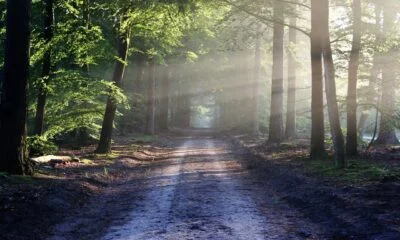
Ways Preserving the Natural Environment Fights Anxiety
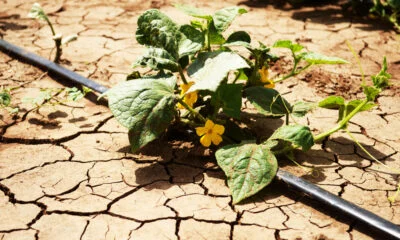
Exploring the Future of Food Concerns in the Face of Climate Change
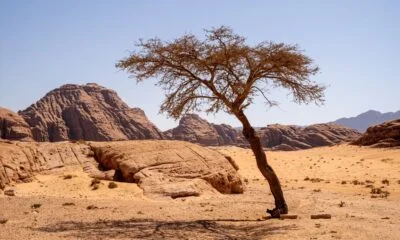
Tips to Prepare for Extreme Weather Caused by Climate Change

FoodTech Advances Can Feed the World Despite Climate Change
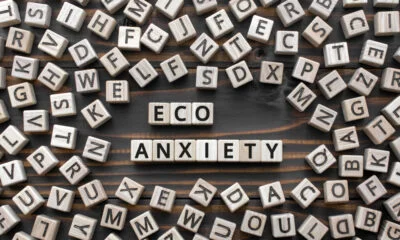
5 Coping Strategies for Anxiety Over Climate Change
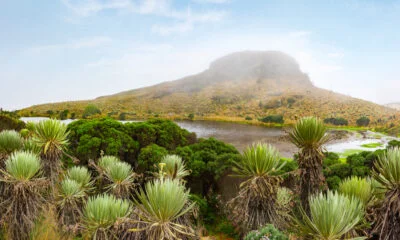
Coffee Farms & Cloud Forests: Colombia’s New Eco Initiatives
Like our Facebook Page

Green Businesses Are Turning to Preventive Maintenance Software

Holistic Healing – Green Approach to Catastrophic Injury Recovery

Renewable Energy and EVs: Perfect Partners for a Greener World

3 Ways an Outdoor Kitchen Can Make Your Home Eco-Friendly

Savvy Investors Are Creating Eco-Friendly Portfolios

Potash: A Future Where Profitability Meets Sustainability

What Are the Most Eco-Friendly Flooring Materials?

Key Technologies For Sustainable Battlefield Strategies

10 Tips to Have a Low-Waste, Eco-Friendly Wedding

Study: Remote Work Lowers Carbon Footprint Up To 54%

How to Become an Environmentally Conscious Entrepreneur in 2024

5 Reasons That Diamonds Can Be Excellent Green Investments
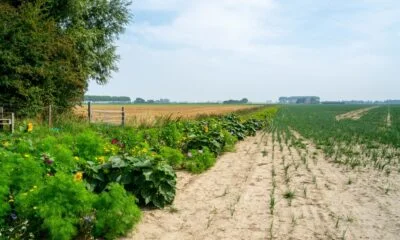
The Circular Economy is Conserving Biodiversity
Climate Change Essay
500+ words essay on climate change.
Climate change is a major global challenge today, and the world is becoming more vulnerable to this change. Climate change refers to the changes in Earth’s climate condition. It describes the changes in the atmosphere which have taken place over a period ranging from decades to millions of years. A recent report from the United Nations predicted that the average global temperature could increase by 6˚ Celsius at the end of the century. Climate change has an adverse effect on the environment and ecosystem. With the help of this essay, students will get to know the causes and effects of climate change and possible solutions. Also, they will be able to write essays on similar topics and can boost their writing skills.
What Causes Climate Change?
The Earth’s climate has always changed and evolved. Some of these changes have been due to natural causes such as volcanic eruptions, floods, forest fires etc., but quite a few of them are due to human activities. Human activities such as deforestation, burning fossil fuels, farming livestock etc., generate an enormous amount of greenhouse gases. This results in the greenhouse effect and global warming which are the major causes of climate change.
Effects of Climate Change
If the current situation of climate change continues in a similar manner, then it will impact all forms of life on the earth. The earth’s temperature will rise, the monsoon patterns will change, sea levels will rise, and storms, volcanic eruptions and natural disasters will occur frequently. The biological and ecological balance of the earth will get disturbed. The environment will get polluted and humans will not be able to get fresh air to breathe and fresh water to drink. Life on earth will come to an end.
Steps to be Taken to Reduce Climate Change
The Government of India has taken many measures to improve the dire situation of Climate Change. The Ministry of Environment and Forests is the nodal agency for climate change issues in India. It has initiated several climate-friendly measures, particularly in the area of renewable energy. India took several steps and policy initiatives to create awareness about climate change and help capacity building for adaptation measures. It has initiated a “Green India” programme under which various trees are planted to make the forest land more green and fertile.
We need to follow the path of sustainable development to effectively address the concerns of climate change. We need to minimise the use of fossil fuels, which is the major cause of global warming. We must adopt alternative sources of energy, such as hydropower, solar and wind energy to make a progressive transition to clean energy. Mahatma Gandhi said that “Earth provides enough to satisfy every man’s need, but not any man’s greed”. With this view, we must remodel our outlook and achieve the goal of sustainable development. By adopting clean technologies, equitable distribution of resources and addressing the issues of equity and justice, we can make our developmental process more harmonious with nature.
We hope students liked this essay on Climate Change and gathered useful information on this topic so that they can write essays in their own words. To get more study material related to the CBSE, ICSE, State Board and Competitive exams, keep visiting the BYJU’S website.
Frequently Asked Questions on climate change Essay
What are the reasons for climate change.
1. Deforestation 2. Excessive usage of fossil fuels 3. Water, Soil pollution 4. Plastic and other non-biodegradable waste 5. Wildlife and nature extinction
How can we save this climate change situation?
1. Avoid over usage of natural resources 2. Do not use or buy items made from animals 3. Avoid plastic usage and pollution
Are there any natural causes for climate change?
Yes, some of the natural causes for climate change are: 1. Solar variations 2. Volcanic eruption and tsunamis 3. Earth’s orbital changes
| CBSE Related Links | |
Leave a Comment Cancel reply
Your Mobile number and Email id will not be published. Required fields are marked *
Request OTP on Voice Call
Post My Comment
Register with BYJU'S & Download Free PDFs
Register with byju's & watch live videos.

45,000+ students realised their study abroad dream with us. Take the first step today
Here’s your new year gift, one app for all your, study abroad needs, start your journey, track your progress, grow with the community and so much more.

Verification Code
An OTP has been sent to your registered mobile no. Please verify

Thanks for your comment !
Our team will review it before it's shown to our readers.

Essay on Global Warming

- Updated on
- Apr 27, 2024
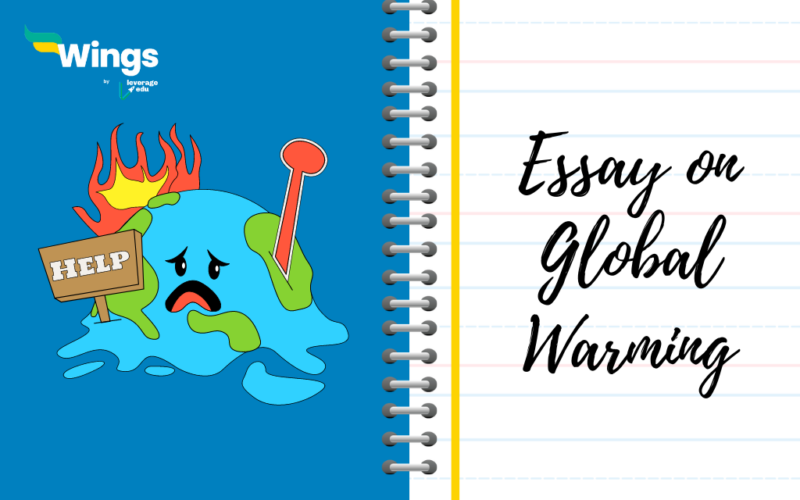
Being able to write an essay is an integral part of mastering any language. Essays form an integral part of many academic and scholastic exams like the SAT, and UPSC amongst many others. It is a crucial evaluative part of English proficiency tests as well like IELTS, TOEFL, etc. Major essays are meant to emphasize public issues of concern that can have significant consequences on the world. To understand the concept of Global Warming and its causes and effects, we must first examine the many factors that influence the planet’s temperature and what this implies for the world’s future. Here’s an unbiased look at the essay on Global Warming and other essential related topics.
Short Essay on Global Warming and Climate Change?
Since the industrial and scientific revolutions, Earth’s resources have been gradually depleted. Furthermore, the start of the world’s population’s exponential expansion is particularly hard on the environment. Simply put, as the population’s need for consumption grows, so does the use of natural resources , as well as the waste generated by that consumption.
Climate change has been one of the most significant long-term consequences of this. Climate change is more than just the rise or fall of global temperatures; it also affects rain cycles, wind patterns, cyclone frequencies, sea levels, and other factors. It has an impact on all major life groupings on the planet.
Also Read: Essay on Yoga Day
Also Read: Speech on Yoga Day

What is Global Warming?
Global warming is the unusually rapid increase in Earth’s average surface temperature over the past century, primarily due to the greenhouse gases released by people burning fossil fuels . The greenhouse gases consist of methane, nitrous oxide, ozone, carbon dioxide, water vapour, and chlorofluorocarbons. The weather prediction has been becoming more complex with every passing year, with seasons more indistinguishable, and the general temperatures hotter.
The number of hurricanes, cyclones, droughts, floods, etc., has risen steadily since the onset of the 21st century. The supervillain behind all these changes is Global Warming. The name is quite self-explanatory; it means the rise in the temperature of the Earth.
Also Read: What is a Natural Disaster?
What are the Causes of Global Warming?
According to recent studies, many scientists believe the following are the primary four causes of global warming:
- Deforestation
- Greenhouse emissions
- Carbon emissions per capita
Extreme global warming is causing natural disasters , which can be seen all around us. One of the causes of global warming is the extreme release of greenhouse gases that become trapped on the earth’s surface, causing the temperature to rise. Similarly, volcanoes contribute to global warming by spewing excessive CO2 into the atmosphere.
The increase in population is one of the major causes of Global Warming. This increase in population also leads to increased air pollution . Automobiles emit a lot of CO2, which remains in the atmosphere. This increase in population is also causing deforestation, which contributes to global warming.
The earth’s surface emits energy into the atmosphere in the form of heat, keeping the balance with the incoming energy. Global warming depletes the ozone layer, bringing about the end of the world. There is a clear indication that increased global warming will result in the extinction of all life on Earth’s surface.
Also Read: Land, Soil, Water, Natural Vegetation, and Wildlife Resources
Solutions for Global Warming
Of course, industries and multinational conglomerates emit more carbon than the average citizen. Nonetheless, activism and community effort are the only viable ways to slow the worsening effects of global warming. Furthermore, at the state or government level, world leaders must develop concrete plans and step-by-step programmes to ensure that no further harm is done to the environment in general.
Although we are almost too late to slow the rate of global warming, finding the right solution is critical. Everyone, from individuals to governments, must work together to find a solution to Global Warming. Some of the factors to consider are pollution control, population growth, and the use of natural resources.
One very important contribution you can make is to reduce your use of plastic. Plastic is the primary cause of global warming, and recycling it takes years. Another factor to consider is deforestation, which will aid in the control of global warming. More tree planting should be encouraged to green the environment. Certain rules should also govern industrialization. Building industries in green zones that affect plants and species should be prohibited.
Also Read: Essay on Pollution
Effects of Global Warming
Global warming is a real problem that many people want to disprove to gain political advantage. However, as global citizens, we must ensure that only the truth is presented in the media.
This decade has seen a significant impact from global warming. The two most common phenomena observed are glacier retreat and arctic shrinkage. Glaciers are rapidly melting. These are clear manifestations of climate change.
Another significant effect of global warming is the rise in sea level. Flooding is occurring in low-lying areas as a result of sea-level rise. Many countries have experienced extreme weather conditions. Every year, we have unusually heavy rain, extreme heat and cold, wildfires, and other natural disasters.
Similarly, as global warming continues, marine life is being severely impacted. This is causing the extinction of marine species as well as other problems. Furthermore, changes are expected in coral reefs, which will face extinction in the coming years. These effects will intensify in the coming years, effectively halting species expansion. Furthermore, humans will eventually feel the negative effects of Global Warming.
Also Read: Concept of Sustainable Development
Sample Essays on Global Warming
Here are some sample essays on Global Warming:
Essay on Global Warming Paragraph in 100 – 150 words
Global Warming is caused by the increase of carbon dioxide levels in the earth’s atmosphere and is a result of human activities that have been causing harm to our environment for the past few centuries now. Global Warming is something that can’t be ignored and steps have to be taken to tackle the situation globally. The average temperature is constantly rising by 1.5 degrees Celsius over the last few years.
The best method to prevent future damage to the earth, cutting down more forests should be banned and Afforestation should be encouraged. Start by planting trees near your homes and offices, participate in events, and teach the importance of planting trees. It is impossible to undo the damage but it is possible to stop further harm.
Also Read: Social Forestry
Essay on Global Warming in 250 Words
Over a long period, it is observed that the temperature of the earth is increasing. This affected wildlife, animals, humans, and every living organism on earth. Glaciers have been melting, and many countries have started water shortages, flooding, and erosion and all this is because of global warming.
No one can be blamed for global warming except for humans. Human activities such as gases released from power plants, transportation, and deforestation have increased gases such as carbon dioxide, CFCs, and other pollutants in the earth’s atmosphere. The main question is how can we control the current situation and build a better world for future generations. It starts with little steps by every individual.
Start using cloth bags made from sustainable materials for all shopping purposes, instead of using high-watt lights use energy-efficient bulbs, switch off the electricity, don’t waste water, abolish deforestation and encourage planting more trees. Shift the use of energy from petroleum or other fossil fuels to wind and solar energy. Instead of throwing out the old clothes donate them to someone so that it is recycled.
Donate old books, don’t waste paper. Above all, spread awareness about global warming. Every little thing a person does towards saving the earth will contribute in big or small amounts. We must learn that 1% effort is better than no effort. Pledge to take care of Mother Nature and speak up about global warming.
Also Read: Types of Water Pollution
Essay on Global Warming in 500 Words
Global warming isn’t a prediction, it is happening! A person denying it or unaware of it is in the most simple terms complicit. Do we have another planet to live on? Unfortunately, we have been bestowed with this one planet only that can sustain life yet over the years we have turned a blind eye to the plight it is in. Global warming is not an abstract concept but a global phenomenon occurring ever so slowly even at this moment. Global Warming is a phenomenon that is occurring every minute resulting in a gradual increase in the Earth’s overall climate. Brought about by greenhouse gases that trap the solar radiation in the atmosphere, global warming can change the entire map of the earth, displacing areas, flooding many countries, and destroying multiple lifeforms. Extreme weather is a direct consequence of global warming but it is not an exhaustive consequence. There are virtually limitless effects of global warming which are all harmful to life on earth. The sea level is increasing by 0.12 inches per year worldwide. This is happening because of the melting of polar ice caps because of global warming. This has increased the frequency of floods in many lowland areas and has caused damage to coral reefs. The Arctic is one of the worst-hit areas affected by global warming. Air quality has been adversely affected and the acidity of the seawater has also increased causing severe damage to marine life forms. Severe natural disasters are brought about by global warming which has had dire effects on life and property. As long as mankind produces greenhouse gases, global warming will continue to accelerate. The consequences are felt at a much smaller scale which will increase to become drastic shortly. The power to save the day lies in the hands of humans, the need is to seize the day. Energy consumption should be reduced on an individual basis. Fuel-efficient cars and other electronics should be encouraged to reduce the wastage of energy sources. This will also improve air quality and reduce the concentration of greenhouse gases in the atmosphere. Global warming is an evil that can only be defeated when fought together. It is better late than never. If we all take steps today, we will have a much brighter future tomorrow. Global warming is the bane of our existence and various policies have come up worldwide to fight it but that is not enough. The actual difference is made when we work at an individual level to fight it. Understanding its import now is crucial before it becomes an irrevocable mistake. Exterminating global warming is of utmost importance and each one of us is as responsible for it as the next.
Also Read: Essay on Library: 100, 200 and 250 Words
Essay on Global Warming UPSC
Always hear about global warming everywhere, but do we know what it is? The evil of the worst form, global warming is a phenomenon that can affect life more fatally. Global warming refers to the increase in the earth’s temperature as a result of various human activities. The planet is gradually getting hotter and threatening the existence of lifeforms on it. Despite being relentlessly studied and researched, global warming for the majority of the population remains an abstract concept of science. It is this concept that over the years has culminated in making global warming a stark reality and not a concept covered in books. Global warming is not caused by one sole reason that can be curbed. Multifarious factors cause global warming most of which are a part of an individual’s daily existence. Burning of fuels for cooking, in vehicles, and for other conventional uses, a large amount of greenhouse gases like carbon dioxide, and methane amongst many others is produced which accelerates global warming. Rampant deforestation also results in global warming as lesser green cover results in an increased presence of carbon dioxide in the atmosphere which is a greenhouse gas. Finding a solution to global warming is of immediate importance. Global warming is a phenomenon that has to be fought unitedly. Planting more trees can be the first step that can be taken toward warding off the severe consequences of global warming. Increasing the green cover will result in regulating the carbon cycle. There should be a shift from using nonrenewable energy to renewable energy such as wind or solar energy which causes less pollution and thereby hinder the acceleration of global warming. Reducing energy needs at an individual level and not wasting energy in any form is the most important step to be taken against global warming. The warning bells are tolling to awaken us from the deep slumber of complacency we have slipped into. Humans can fight against nature and it is high time we acknowledged that. With all our scientific progress and technological inventions, fighting off the negative effects of global warming is implausible. We have to remember that we do not inherit the earth from our ancestors but borrow it from our future generations and the responsibility lies on our shoulders to bequeath them a healthy planet for life to exist.
Also Read: Essay on Disaster Management
Climate Change and Global Warming Essay
Global Warming and Climate Change are two sides of the same coin. Both are interrelated with each other and are two issues of major concern worldwide. Greenhouse gases released such as carbon dioxide, CFCs, and other pollutants in the earth’s atmosphere cause Global Warming which leads to climate change. Black holes have started to form in the ozone layer that protects the earth from harmful ultraviolet rays.
Human activities have created climate change and global warming. Industrial waste and fumes are the major contributors to global warming.
Another factor affecting is the burning of fossil fuels, deforestation and also one of the reasons for climate change. Global warming has resulted in shrinking mountain glaciers in Antarctica, Greenland, and the Arctic and causing climate change. Switching from the use of fossil fuels to energy sources like wind and solar.
When buying any electronic appliance buy the best quality with energy savings stars. Don’t waste water and encourage rainwater harvesting in your community.
Also Read: Essay on Air Pollution
Tips to Write an Essay
Writing an effective essay needs skills that few people possess and even fewer know how to implement. While writing an essay can be an assiduous task that can be unnerving at times, some key pointers can be inculcated to draft a successful essay. These involve focusing on the structure of the essay, planning it out well, and emphasizing crucial details.
Mentioned below are some pointers that can help you write better structure and more thoughtful essays that will get across to your readers:
- Prepare an outline for the essay to ensure continuity and relevance and no break in the structure of the essay
- Decide on a thesis statement that will form the basis of your essay. It will be the point of your essay and help readers understand your contention
- Follow the structure of an introduction, a detailed body followed by a conclusion so that the readers can comprehend the essay in a particular manner without any dissonance.
- Make your beginning catchy and include solutions in your conclusion to make the essay insightful and lucrative to read
- Reread before putting it out and add your flair to the essay to make it more personal and thereby unique and intriguing for readers
Also Read: I Love My India Essay: 100 and 500+ Words in English for School Students
Ans. Both natural and man-made factors contribute to global warming. The natural one also contains methane gas, volcanic eruptions, and greenhouse gases. Deforestation, mining, livestock raising, burning fossil fuels, and other man-made causes are next.
Ans. The government and the general public can work together to stop global warming. Trees must be planted more often, and deforestation must be prohibited. Auto usage needs to be curbed, and recycling needs to be promoted.
Ans. Switching to renewable energy sources , adopting sustainable farming, transportation, and energy methods, and conserving water and other natural resources.
Relevant Blogs
For more information on such interesting topics, visit our essay writing page and follow Leverage Edu.
Digvijay Singh
Having 2+ years of experience in educational content writing, withholding a Bachelor's in Physical Education and Sports Science and a strong interest in writing educational content for students enrolled in domestic and foreign study abroad programmes. I believe in offering a distinct viewpoint to the table, to help students deal with the complexities of both domestic and foreign educational systems. Through engaging storytelling and insightful analysis, I aim to inspire my readers to embark on their educational journeys, whether abroad or at home, and to make the most of every learning opportunity that comes their way.
Leave a Reply Cancel reply
Save my name, email, and website in this browser for the next time I comment.
Contact no. *
This was really a good essay on global warming… There has been used many unic words..and I really liked it!!!Seriously I had been looking for a essay about Global warming just like this…
Thank you for the comment!
I want to learn how to write essay writing so I joined this page.This page is very useful for everyone.
Hi, we are glad that we could help you to write essays. We have a beginner’s guide to write essays ( https://leverageedu.com/blog/essay-writing/ ) and we think this might help you.
It is not good , to have global warming in our earth .So we all have to afforestation program on all the world.
thank you so much
Very educative , helpful and it is really going to strength my English knowledge to structure my essay in future
Thank you for the comment, please follow our newsletter to get more insights on studying abroad and exams!
Global warming is the increase in 𝓽𝓱𝓮 ᴀᴠᴇʀᴀɢᴇ ᴛᴇᴍᴘᴇʀᴀᴛᴜʀᴇs ᴏғ ᴇᴀʀᴛʜ🌎 ᴀᴛᴍᴏsᴘʜᴇʀᴇ

Leaving already?
8 Universities with higher ROI than IITs and IIMs
Grab this one-time opportunity to download this ebook
Connect With Us
45,000+ students realised their study abroad dream with us. take the first step today..

Resend OTP in

Need help with?
Study abroad.
UK, Canada, US & More
IELTS, GRE, GMAT & More
Scholarship, Loans & Forex
Country Preference
New Zealand
Which English test are you planning to take?
Which academic test are you planning to take.
Not Sure yet
When are you planning to take the exam?
Already booked my exam slot
Within 2 Months
Want to learn about the test
Which Degree do you wish to pursue?
When do you want to start studying abroad.
September 2024
January 2025
What is your budget to study abroad?

How would you describe this article ?
Please rate this article
We would like to hear more.
Explore Greyhound Nation
- Loyola Today
Our Future Is Now - A Climate Change Essay by Francesca Minicozzi, '21
Francesca Minicozzi (class of 2021) is a Writing/Biology major who plans to study medicine after graduation. She wrote this essay on climate change for WR 355/Travel Writing, which she took while studying abroad in Newcastle in spring 2020. Although the coronavirus pandemic curtailed Francesca’s time abroad, her months in Newcastle prompted her to learn more about climate change. Terre Ryan Associate Professor, Writing Department
Our Future Is Now
By Francesca Minicozzi, '21 Writing and Biology Major
“If you don’t mind me asking, how is the United States preparing for climate change?” my flat mate, Zac, asked me back in March, when we were both still in Newcastle. He and I were accustomed to asking each other about the differences between our home countries; he came from Cambridge, while I originated in Long Island, New York. This was one of our numerous conversations about issues that impact our generation, which we usually discussed while cooking dinner in our communal kitchen. In the moment of our conversation, I did not have as strong an answer for him as I would have liked. Instead, I informed him of the few changes I had witnessed within my home state of New York.

Zac’s response was consistent with his normal, diplomatic self. “I have been following the BBC news in terms of the climate crisis for the past few years. The U.K. has been working hard to transition to renewable energy sources. Similar to the United States, here in the United Kingdom we have converted over to solar panels too. My home does not have solar panels, but a lot of our neighbors have switched to solar energy in the past few years.”
“Our two countries are similar, yet so different,” I thought. Our conversation continued as we prepared our meals, with topics ranging from climate change to the upcoming presidential election to Britain’s exit from the European Union. However, I could not shake the fact that I knew so little about a topic so crucial to my generation.
After I abruptly returned home from the United Kingdom because of the global pandemic, my conversation with my flat mate lingered in my mind. Before the coronavirus surpassed climate change headlines, I had seen the number of internet postings regarding protests to protect the planet dramatically increase. Yet the idea of our planet becoming barren and unlivable in a not-so-distant future had previously upset me to the point where a part of me refused to deal with it. After I returned from studying abroad, I decided to educate myself on the climate crisis.
My quest for climate change knowledge required a thorough understanding of the difference between “climate change” and “global warming.” Climate change is defined as “a pattern of change affecting global or regional climate,” based on “average temperature and rainfall measurements” as well as the frequency of extreme weather events. 1 These varied temperature and weather events link back to both natural incidents and human activity. 2 Likewise, the term global warming was coined “to describe climate change caused by humans.” 3 Not only that, but global warming is most recently attributed to an increase in “global average temperature,” mainly due to greenhouse gas emissions produced by humans. 4
I next questioned why the term “climate change” seemed to take over the term “global warming” in the United States. According to Frank Luntz, a leading Republican consultant, the term “global warming” functions as a rather intimidating phrase. During George W. Bush’s first presidential term, Luntz argued in favor of using the less daunting phrase “climate change” in an attempt to overcome the environmental battle amongst Democrats and Republicans. 5 Since President Bush’s term, Luntz remains just one political consultant out of many politicians who has recognized the need to address climate change. In an article from 2019, Luntz proclaimed that political parties aside, the climate crisis affects everyone. Luntz argued that politicians should steer clear of trying to communicate “the complicated science of climate change,” and instead engage voters by explaining how climate change personally impacts citizens with natural disasters such as hurricanes, tornadoes, and forest fires. 6 He even suggested that a shift away from words like “sustainability” would gear Americans towards what they really want: a “cleaner, safer, healthier” environment. 7
The idea of a cleaner and heathier environment remains easier said than done. The Paris Climate Agreement, introduced in 2015, began the United Nations’ “effort to combat global climate change.” 8 This agreement marked a global initiative to “limit global temperature increase in this century to 2 degrees Celsius above preindustrial levels,” while simultaneously “pursuing means to limit the increase to 1.5 degrees.” 9 Every country on earth has joined together in this agreement for the common purpose of saving our planet. 10 So, what could go wrong here? As much as this sounds like a compelling step in the right direction for climate change, President Donald Trump thought otherwise. In June 2017, President Trump announced the withdrawal of the United States from the Paris Agreement with his proclamation of climate change as a “’hoax’ perpetrated by China.” 11 President Trump continued to question the scientific facts behind climate change, remaining an advocate for the expansion of domestic fossil fuel production. 12 He reversed environmental policies implemented by former President Barack Obama to reduce fossil fuel use. 13
Trump’s actions against the Paris Agreement, however, fail to represent the beliefs of Americans as a whole. The majority of American citizens feel passionate about the fight against climate change. To demonstrate their support, some have gone as far as creating initiatives including America’s Pledge and We Are Still In. 14 Although the United States officially exited the Paris Agreement on November 4, 2020, this withdrawal may not survive permanently. 15 According to experts, our new president “could rejoin in as short as a month’s time.” 16 This offers a glimmer of hope.
The Paris Agreement declares that the United States will reduce greenhouse gas emission levels by 26 to 28 percent by the year 2025. 17 As a leader in greenhouse gas emissions, the United States needs to accept the climate crisis for the serious challenge that it presents and work together with other nations. The concept of working coherently with all nations remains rather tricky; however, I remain optimistic. I think we can learn from how other countries have adapted to the increased heating of our planet. During my recent study abroad experience in the United Kingdom, I was struck by Great Britain’s commitment to combating climate change.
Since the United Kingdom joined the Paris Agreement, the country targets a “net-zero” greenhouse gas emission for 2050. 18 This substantial alteration would mark an 80% reduction of greenhouse gases from 1990, if “clear, stable, and well-designed policies are implemented without interruption.” 19 In order to stay on top of reducing emissions, the United Kingdom tracks electricity and car emissions, “size of onshore and offshore wind farms,” amount of homes and “walls insulated, and boilers upgraded,” as well as the development of government policies, including grants for electric vehicles. 20 A strong grip on this data allows the United Kingdom to target necessary modifications that keep the country on track for 2050. In my brief semester in Newcastle, I took note of these significant changes. The city of Newcastle is small enough that many students and faculty are able to walk or bike to campus and nearby essential shops. However, when driving is unavoidable, the majority of the vehicles used are electric, and many British citizens place a strong emphasis on carpooling to further reduce emissions. The United Kingdom’s determination to severely reduce greenhouse emissions is ambitious and particularly admirable, especially as the United States struggles to shy away from its dependence on fossil fuels.
So how can we, as Americans, stand together to combat global climate change? Here are five adjustments Americans can make to their homes and daily routines that can dramatically make a difference:
- Stay cautious of food waste. Studies demonstrate that “Americans throw away up to 40 percent of the food they buy.” 21 By being more mindful of the foods we purchase, opting for leftovers, composting wastes, and donating surplus food to those in need, we can make an individual difference that impacts the greater good. 22
- Insulate your home. Insulation functions as a “cost-effective and accessible” method to combat climate change. 23 Homes with modern insulation reduce energy required to heat them, leading to a reduction of emissions and an overall savings; in comparison, older homes can “lose up to 35 percent of heat through their walls.” 24
- Switch to LED Lighting. LED stands for “light-emitting diodes,” which use “90 percent less energy than incandescent bulbs and half as much as compact fluorescents.” 25 LED lights create light without producing heat, and therefore do not waste energy. Additionally, these lights have a longer duration than other bulbs, which means they offer a continuing savings. 26
- Choose transportation wisely. Choose to walk or bike whenever the option presents itself. If walking or biking is not an option, use an electric or hybrid vehicle which emits less harmful gases. Furthermore, reduce the number of car trips taken, and carpool with others when applicable.
- Finally, make your voice heard. The future of our planet remains in our hands, so we might as well use our voices to our advantage. Social media serves as a great platform for this. Moreover, using social media to share helpful hints to combat climate change within your community or to promote an upcoming protest proves beneficial in the long run. If we collectively put our voices to good use, together we can advocate for change.
As many of us are stuck at home due to the COVID-19 pandemic, these suggestions are slightly easier to put into place. With numerous “stay-at-home” orders in effect, Americans have the opportunity to make significant achievements for climate change. Personally, I have taken more precautions towards the amount of food consumed within my household during this pandemic. I have been more aware of food waste, opting for leftovers when too much food remains. Additionally, I have realized how powerful my voice is as a young college student. Now is the opportunity for Americans to share how they feel about climate change. During this unprecedented time, our voice is needed now more than ever in order to make a difference.
However, on a much larger scale, the coronavirus outbreak has shed light on reducing global energy consumption. Reductions in travel, both on the roads and in the air, have triggered a drop in emission rates. In fact, the International Energy Agency predicts a 6 percent decrease in energy consumption around the globe for this year alone. 27 This drop is “equivalent to losing the entire energy demand of India.” 28 Complete lockdowns have lowered the global demand for electricity and slashed CO2 emissions. However, in New York City, the shutdown has only decreased carbon dioxide emissions by 10 percent. 29 This proves that a shift in personal behavior is simply not enough to “fix the carbon emission problem.” 30 Climate policies aimed to reduce fossil fuel production and promote clean technology will be crucial steppingstones to ameliorating climate change effects. Our current reduction of greenhouse gas emissions serves as “the sort of reduction we need every year until net-zero emissions are reached around 2050.” 31 From the start of the coronavirus pandemic, politicians came together for the common good of protecting humanity; this demonstrates that when necessary, global leaders are capable of putting humankind above the economy. 32
After researching statistics comparing the coronavirus to climate change, I thought back to the moment the virus reached pandemic status. I knew that a greater reason underlay all of this global turmoil. Our globe is in dire need of help, and the coronavirus reminds the world of what it means to work together. This pandemic marks a turning point in global efforts to slow down climate change. The methods we enact towards not only stopping the spread of the virus, but slowing down climate change, will ultimately depict how humanity will arise once this pandemic is suppressed. The future of our home planet lies in how we treat it right now.
- “Climate Change: What Do All the Terms Mean?,” BBC News (BBC, May 1, 2019), https://www.bbc.com/news/science-environment-48057733 )
- Ibid.
- Kate Yoder, “Frank Luntz, the GOP's Message Master, Calls for Climate Action,” Grist (Grist, July 26, 2019), https://grist.org/article/the-gops-most-famous-messaging-strategist-calls-for-climate-action
- Melissa Denchak, “Paris Climate Agreement: Everything You Need to Know,” NRDC, April 29, 2020, https://www.nrdc.org/stories/paris-climate-agreement-everything-you-need-know)
- “Donald J. Trump's Foreign Policy Positions,” Council on Foreign Relations (Council on Foreign Relations), accessed May 7, 2020, https://www.cfr.org/election2020/candidate-tracker/donald-j.-trump?gclid=CjwKCAjw4871BRAjEiwAbxXi21cneTRft_doA5if60euC6QCL7sr-Jwwv76IkgWaUTuyJNx9EzZzRBoCdjsQAvD_BwE#climate and energy )
- David Doniger, “Paris Climate Agreement Explained: Does Congress Need to Sign Off?,” NRDC, December 15, 2016, https://www.nrdc.org/experts/david-doniger/paris-climate-agreement-explained-does-congress-need-sign )
- “How the UK Is Progressing,” Committee on Climate Change, March 9, 2020, https://www.theccc.org.uk/what-is-climate-change/reducing-carbon-emissions/how-the-uk-is-progressing/)
- Ibid.
- “Top 10 Ways You Can Fight Climate Change,” Green America, accessed May 7, 2020, https://www.greenamerica.org/your-green-life/10-ways-you-can-fight-climate-change )
- Matt McGrath, “Climate Change and Coronavirus: Five Charts about the Biggest Carbon Crash,” BBC News (BBC, May 5, 2020), https://www.bbc.com/news/amp/science-environment-52485712 )
List: 15 essential reads for the climate crisis
Share this idea.
- Click to share on Facebook (Opens in new window)
- Click to share on Twitter (Opens in new window)
- Click to share on LinkedIn (Opens in new window)
- Click to share on Reddit (Opens in new window)
- Click to share on Pocket (Opens in new window)
- Click to share on WhatsApp (Opens in new window)
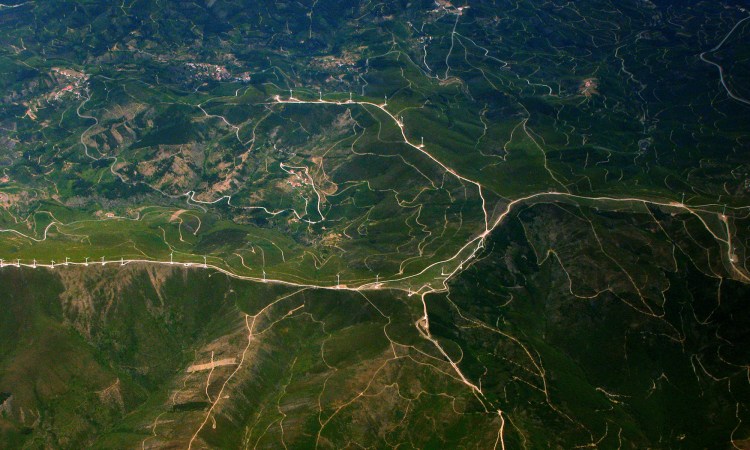
We — Ayana Elizabeth Johnson and Katharine Wilkinson — are climate experts who focus on solutions, leadership and building community.
We are a natural and a social scientist, a Northerner and a Southerner. We’re also both lifelong interdisciplinarians in love with words and the cofounders of The All We Can Save Project , in support of women climate leaders.
Our collaboration has led us to read widely and deeply about the climate crisis that’s facing humanity. Here are 15 of our favorite writings on climate — this eclectic list contains books, essays, a newsletter, a scientific paper, even legislation and they’re all ones we wholeheartedly recommend.
All We Can Save: Truth, Courage, and Solutions for the Climate Crisis coedited by Ayana Elizabeth Johnson and Katharine Wilkinson
We had the honor of editing this collection of 41 essays, 17 poems, quotes and original illustrations — so naturally we love it! But you don’t have to take our word for it. As Rolling Stone said : “Taken together, the breadth of their voices forms a mosaic that honors the complexity of the climate crisis like few, if any, books on the topic have done yet. … The book is a feast of ideas and perspectives, setting a big table for the climate movement, declaring all are welcome.” All We Can Save nourished, educated and transformed us as we shaped its pages, and we can’t wait for it to do the same for you.
Ghost Fishing: An Eco-justice Poetry Anthology edited by Melissa Tuckey
We count ourselves among those who can’t make sense of the climate crisis without the aid of poets, who help us to see more clearly, feel our feelings, catch our breath, and know we’re not alone. This anthology is a magnificent quilt of poems that are made for this moment and all its intersections.
“We Don’t Have to Halt Climate Action to Fight Racism” by Mary Annaïse Heglar
“Climate People,” as she likes to call us, should be grateful that Mary Annaïse Heglar decided a few years back to pick up her pen once more as a writer. All of her essays are necessary reading, but this one is especially so, crafted from Mary’s perspective as a “Black Climate Person.” It’s a powerful articulation of the inextricability of a society that values Black lives and a livable planet for all.
Sacred Instructions: Indigenous Wisdom for Living Spirit-Based Change by Sherri Mitchell — Weh’na Ha’mu Kwasset
Weh’na Ha’mu Kwasset means “she who brings the light,” and Sherri Mitchell does exactly that in this incredible tapestry of a book, which begins with Penawahpskek Nation creation stories and concludes with guidance on what it means to live in a time of prophecy. It is rare that a book so generously shares wisdom, much less wisdom about how we got to where we are, what needs mending, and what a path forward that’s grounded in ancestral ways of knowing and being might look like.
Emergent Strategy: Shaping Change, Changing Worlds by adrienne maree brown
How lucky are we to be contemporaries of adrienne maree brown? Very. This is a book that we come back to time and time again to ground and enliven our work. We love this line from her about oak trees: “Under the earth, always, they reach for each other, they grow such that their roots are intertwined and create a system of strength that is as resilient on a sunny day as it is in a hurricane.” That’s the kind of community we’re trying to nurture.
“Circumstances Affecting the Heat of the Sun’s Rays” by Eunice Newton Foote
Eunice Newton Foote rarely gets the credit she’s due — and she deserves a lot of credit. In fact, we like to think of her as the first climate feminist. In 1856, she connected the dots between carbon dioxide and planetary warming, but science and history forgot (dismissed?) her until recently. This is her original paper, which was published in The American Journal of Science and Arts . Foote was also a signatory to the women’s rights manifesto created at Seneca Falls in 1848, alongside visionaries like Frederick Douglass.
The Drawdown Review by Project Drawdown
Full disclosure: Katharine is The Drawdown Review’ s editor-in-chief and principal writer. But Ayana fully endorses this recommendation — it’s a valuable resource as we charge ahead toward climate solutions. We all need to know what tools are in the toolbox, and The Drawdown Review is the latest compendium of climate solutions that already exist. This publication is beautifully designed, grounded in research, and you can access it for free.
The Green New Deal Resolution by the 116th US Congress
It seems that almost everyone has an opinion about the Green New Deal, but few people have read the actual piece of legislation: House Resolution 109: Recognizing the Duty of the Federal Government to Create a Green New Deal, which was introduced by Rep. Alexandria Ocasio-Cortez and Sen. Ed Markey. The big secret is that it’s only 14 pages! It makes a clear, compelling and concise case for what comprehensive climate policy should look like in the US. We’d love for everyone to read it so we can all have a more grounded discussion about what we might agree and disagree with and chart a course forward.
“Think This Pandemic Is Bad? We Have Another Crisis Coming” by Rhiana Gunn-Wright
Speaking of policy … this op-ed , penned by Rhiana Gunn-Wright, who is one of the policy leads for the Green New Deal, makes the connections between climate, justice, COVID-19 and our recession as clear as day. She lays out an ironclad case for the the need to address these issues together, and why. As she writes, “We need to design the stimulus not only to help the US economy recover but to also become more resilient to the climate crisis, the next multitrillion-dollar crisis headed our way.”
“How Can We Plan for a Future in California?” by Leah Stokes
In the midst of raging fires and continuing pandemic, UC Santa Barbara Professor Leah Stokes, who’s based in Santa Barbara, lays it plain in her piece : “I don’t want to live in a world where we have to decide which mask to wear for which disaster, but this is the world we are making. And we’ve only started to alter the climate. Imagine what it will be like when we’ve doubled or tripled the warming, as we are on track to do.” As she and others have been pointing out, journalists have been failing to make the critical connection: “What’s happening in California has a name: climate change.”
HEATED by Emily Atkin
This is the reading rec that keeps on giving, literally — it’s a daily newsletter that brings climate accountability journalism right to your inbox. It’s chock full of smarts, spunk, truth-telling and super timely writing that isn’t hemmed in by media overlords. If you’re pissed off about the climate crisis, Emily Atkin made HEATED just for you.
The July 20 2020 Issue of TIME Magazine
This entire issue, titled “One Last Chance”, is dedicated to coverage of climate, and it includes wise words from so many luminaries from politician Stacey Abrams to soil scientist Asmeret Asefaw Berhe , with a lead piece by Time ’s climate journalist Justin Worland. Ayana also has a piece in this issue called “ We Can’t Solve the Climate Crisis Unless Black Lives Matter .” To see all of this collected in one place — insights on topics from oceans to agriculture to politics to activism — was heartening. We hope there’s much more of this to come, from many magazines.
“Wakanda Doesn’t Have Suburbs” by Kendra Pierre Louis
A pop-culture connoisseur and expert storyteller, Kendra Pierre Louis takes up the topic of climate stories in her essay — the good, the bad, and the ugly. The good, she explains, are all too rare, and that’s a big problem because stories are powerful. Black Panther may be our best story of living thoughtfully and well on this planet, not least thanks to an absence of carbon-spewing suburbs. It’s going to take much better narratives, and many more of them, if humans are to, as she puts it, “repair our relationship with the Earth and re-envision our societies in ways that are not just in keeping with our ecosystems but also make our lives better.” !
“We Need Courage, Not Hope, to Face Climate Change” by Kate Marvel PhD
This piece by NASA climate scientist Kate Marvel is, as the kids say, a whole mood. Hope is not enough, hope is often passive, and that won’t get us where we need to go. Pretty much everyone who works on climate is constantly being asked what gives us hope — how presumptuous to assume we have it! But what we do have is courage. In spades. As Marvel writes in this poetic piece: “We need courage, not hope. Grief, after all, is the cost of being alive. We are all fated to live lives shot through with sadness, and are not worth less for it. Courage is the resolve to do well without the assurance of a happy ending.”
Truth, Courage, and Solutions for the Climate Crisis
Admittedly, this last recommendation isn’t something to read, but to watch and listen to. This playlist of TED Talks by women climate leaders (who were all contributors to our anthology All We Can Save — read about it above) will inspire you, deepen your understanding, connect the dots and help you find where you might fit into the heaps of climate work that needs doing. It includes poignant talks by Colette Pichon Battle and Christine Nieves Rodriguez , which are respectively about communities in Louisiana and Puerto Rico recovering from hurricanes and rebuilding resilience and which broke our hearts open. We were so moved we invited them to adapt their talks into essays for All We Can Save . Christine’s piece — “Community is Our Best Chance” — is the final essay in the book and the note we want to end on here. It’s not about what each of us can do as individuals to address the climate crisis; it’s about what we can do together . Building community around solutions is the most important thing.
Watch Ayana Elizabeth Johnson’s TED Talk here:
Watch Katharine Wilkinson’s TED Talk here:
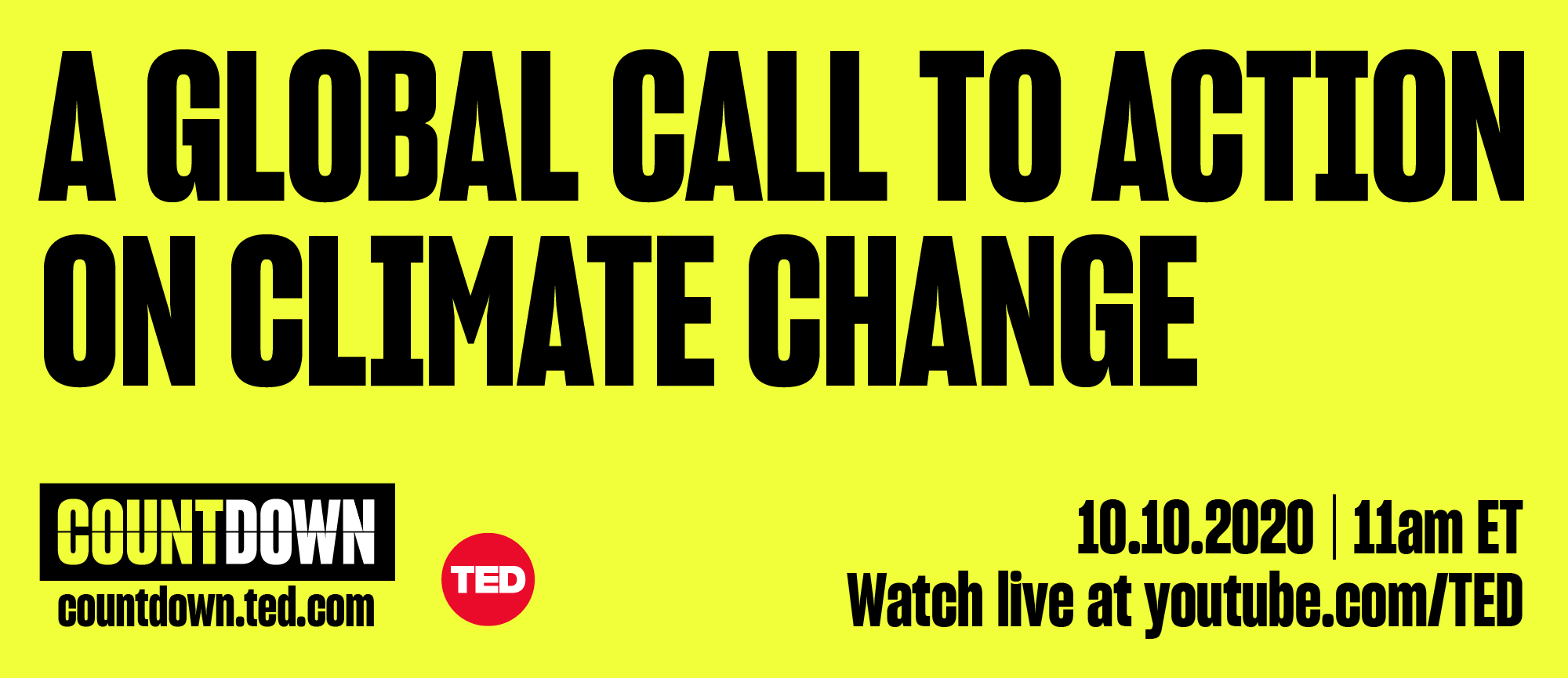
About the authors
Ayana Elizabeth Johnson PhD is a marine biologist, policy expert and Brooklyn native. She is founder of the nonprofit think tank Urban Ocean Lab, founder and CEO of the consultancy Ocean Collectiv and cocreator and cohost of the Spotify/Gimlet podcast How to Save a Planet. She coedited the anthology All We Can Save and cofounded The All We Can Save Project in support of women climate leaders. Her mission is to build community around climate solutions. Find her @ayanaeliza.
Katharine Wilkinson PhD is an author, strategist, teacher and one of 15 “women who will save the world,” according to Time magazine. Her writings on climate include The Drawdown Review, the New York Times bestseller Drawdown and Between God & Green. She is coeditor of All We Can Save and co founder of The All We Can Save Project, in support of women climate leaders. Wilkinson is a former Rhodes Scholar. Find her @DrKWilkinson.
- ayana elizabeth johnson
- climate change
- katharine wilkinson
- reading list
- society and culture
TED Talk of the Day

How to make radical climate action the new normal

6 ways to give that aren't about money

A smart way to handle anxiety -- courtesy of soccer great Lionel Messi

How do top athletes get into the zone? By getting uncomfortable

6 things people do around the world to slow down

Creating a contract -- yes, a contract! -- could help you get what you want from your relationship

Could your life story use an update? Here’s how to do it

6 tips to help you be a better human now

How to have better conversations on social media (really!)

3 strategies for effective leadership, from a former astronaut
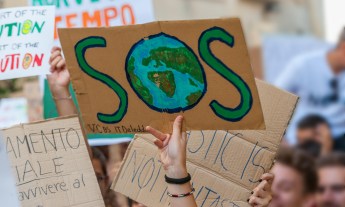
9 youth climate activists from around the world share their book and podcast picks

How to talk honestly to kids about climate change -- and still give them hope

Here's how your climate-related choices are contagious (in a good way!)

Jane Fonda: Why women are at the forefront of climate solutions
Climate Change High School Questions
Help students understand how climate change poses an extraordinary threat to the planet and its inhabitants through these essay and discussion questions.
Introduction
- In what ways have human activities contributed to climate change as evidenced by increasing average global temperatures? What types of activities contribute most directly and are seen in historic records?
- What are some of the consequences of climate change? How can humans help mitigate climate change?
- Why are scientists so concerned with what they are observing in Greenland? What is the enhanced Greenhouse Effect? How does climate change create an unhealthy melting cycle in Greenland? What will happen if climate change continues to worsen (with average global temperatures rising more than 2.0℃)?
- Why does addressing climate cause challenges at the international level?
- When looking at greenhouse emissions, why is it important to consider both annual and cumulative emissions?
- How can measuring greenhouse gas emissions help guide policy decisions about climate change?
- How should the responsibility for combating climate change be divided up among countries?
- What are the benefits of letting each country decide its own Nationally Defined Contribution (NDC)? What are the limitations of this approach? Why do you think negotiators chose this approach, rather than negotiating each country’s responsibility as they did in the Kyoto Protocol?
- Each country has access to the same information about climate - why do you think their NDCs differ so greatly?
- What do you think the impact of the U.S. withdrawal from the Paris Agreement was? How can countries be persuaded to stay in the agreement in the future?
- Do you think the Paris Agreement is sufficient to address climate change? If not, what further action is needed?
- In what ways will climate change affect life? In what ways will it affect the lives of people around the world?
- What are some examples of ways in which climate change will affect people around the world unequally? What are the effects of this inequality?
- How does climate change contribute to water scarcity?
- In what ways will water scarcity affect your life? In what ways will it affect the lives of people around the world?
- Why is it important to consider how advancements in AI might impact the future of climate change? What are some important aspects for policymakers to consider about AI in relation to climate change?
- Do you think it is worth investing in AI as a means of fighting climate change? Why or why not?
- Do you think the future potential of AI might overshadow the need to address climate change in the short term?
- What are some ways that the Inflation Reduction Act seeks to fight climate change?
- What are some ways that countries can incentivize/disincentivize behaviors related to climate change?
- Should the world focus efforts on mitigation, adaptation, or geoengineering? Why?
- Should developing countries like China and India continue industrializing, even though their carbon emissions are increasing as a result?
You are using an outdated browser. Please upgrade your browser or activate Google Chrome Frame to improve your experience.

Thanks for signing up as a global citizen. In order to create your account we need you to provide your email address. You can check out our Privacy Policy to see how we safeguard and use the information you provide us with. If your Facebook account does not have an attached e-mail address, you'll need to add that before you can sign up.
This account has been deactivated.
Please contact us at [email protected] if you would like to re-activate your account.
This year is setting up to be a momentous year in the movement for climate action. Scroll through your newsfeed, scan the day's headlines, and chances are you'll see something about climate change.
This is good news. Largely because, as the latest IPCC report published in March made extremely clear, we are out of time for talking. We have to see urgent and widespread action on climate change right now — and that means global, systemic transformation.
But it can get overwhelming. Both in terms of eco-anxiety — an international study in 2021 revealed that 60% of young people were very worried about climate change — but also in terms of the sheer amount of information to know.
International climate policy isn’t exactly taught in school ( although many, such as activist Scarlett Westbrook, argue it should be ) and a barrage of media stories might have left you wondering what the difference is between your "net zero", your “NDCs”, and your “nature-based solutions.”
So to help, here’s a handy glossary of all the climate-related words and phrases you should know about.
Climate Change
Climate change refers to long-term shifts in temperatures and weather patterns within global or regional climate patterns . The main cause of climate change is burning fossil fuels — such as coal, oil, and gas — to produce energy and power transport.
In addition to other human activities , like cutting down forests and farming , this releases heat-trapping pollution (called greenhouse gases) into the atmosphere, warming the planet and destabilizing the climate.
Climate change is already having a devastating impact on people all around the world, particularly through extreme weather events like heatwaves, wildfires, cyclones, droughts, and floods. Climate change is also disproportionately impacting the world's poorest people and nations the most, despite these populations having contributed the least to climate change.
Climate Crisis
The climate crisis refers to the urgent need for immediate action to mitigate the impacts of climate change and address the causes of climate change, and prevent serious and permanent damage to the environment.
Global Warming
Global warming refers to a long-term warming of the Earth’s surface overall temperature . Though this warming trend has been going on for a long time , its pace has significantly increased in the last hundred years due to the burning of fossil fuels.
Human activity has played a huge role in the increase of our planet’s temperature. Burning fossil fuels leads to greenhouse gases, which cause what's known as the “greenhouse effect” in earth’s atmosphere — which locks heat into the earth's atmosphere and causes the average global temperature to rise.
Learn more about global warming and its causes and effects in our explainer here.
Fossil Fuels
Fossil fuel is a generic term for non-renewable energy sources such as coal, natural gas, derived gas, crude oil, petroleum products, and non-renewable wastes . These fuels originate from dead plants and animals that existed millions of years ago , and can also be made by industrial processes from other fossil fuels.
When fossil fuels are burned they release harmful gases into the atmosphere and cause global warming (see above!). Fossil fuels currently supply around 80% of the world’s energy.
1.5 Degrees
Debates about climate policy often refer to the need to limit global warming to no more than 1.5 degrees Celsius. But where did this limit come from, and why?
It refers to how we are tracking the world’s temperature in comparison to pre-industrial temperatures. The world is already 1.2C degrees warmer , and we’re seeing changes in weather and the climate as a result.
The idea of limiting warming to 1.5 degrees comes from the Intergovernmental Panel on Climate Change (IPCC) , a UN body founded in 1988 to regularly assess all the available science on the changing global climate. Scientific predictions have been made about what the likely effect of incremental temperature rises would be — you can read about the differences between a 1.5, 2, and 3 degree rise here .
The Paris Agreement signed at COP21 in 2015 committed all 196 countries that signed it to endeavoring to keep global warming to below 2 degrees, and ideally no more than 1.5 degrees.
Loss & Damage
Loss and damage is a phrase you'll likely hear a lot, and it refers, to quote the UN Environment Program , "to the negative consequences that arise from the unavoidable risks of climate change" — things like, extreme weather events, rising sea levels, species extinction, and more. There's no internationally agreed definition for loss and damage, but it typically refers to the destructive impacts of climate change.
When capitalized, Loss and Damage is typically used when referring to international climate negotiations and the plans and policies that address loss and damage. Loss and Damage is incredibly important in addressing the injustice of climate change — with low-income and climate-vulnerable countries disproportionately experiencing the impacts of climate change and the mounting costs that result from loss and damage, despite having contributed the least to the causes of climate change.
Climate Adaptation
It’s vital that countries drastically cut carbon emissions to address climate change — but our climate is already changing and, as such, countries also need to adapt.
With sea levels already rising and extreme weather events increasing in frequency and intensity, it’s clear that to protect vulnerable communities from the worst impacts, a significant amount of adaptation is required.
Climate adaptation can take many forms. It can mean building flood defenses, but it can also mean strengthening food systems so that they can withstand shocks. It’s important that wealthy countries, that have done the most to cause climate change, step up and support lower-income countries with this process of adaptation. You can learn more about climate adaptation here .
Climate Finance
Dedicated and ring-fenced climate finance is what is needed to help fund efforts to address climate change — from cutting carbon emissions and shifting to clean energy, to adapting to climate change's impacts.
In short, billions of dollars are needed to address the increased poverty that climate change causes, to bolster systems to cope with its effects, and to support low- and middle-income countries to manage a just transition to greener economies.
It is especially important that funds are mobilized to help the poorest communities globally — those that did the least to cause the climate crisis but are bearing the brunt of the consequences.
At the COP15 climate conference in Copenhagen in 2009, high-income economies pledged to mobilize $100 billion annually to fund adaptation and mitigation projects by 2020. However that promised funding has yet to be delivered. You can take action and join the call on world leaders to deliver the funding .
Find out more here about climate finance here.
Nature-Based Solutions
Nature-based solutions are an important aspect of the multi-pronged approach to fighting climate change. They are any action that works to sustainably manage, restore, and protect natural ecosystems — which in turn help build resilience to the impacts of climate change.
These are solutions like restoring mangrove forests to help provide an effective natural barrier against coastal flooding, or massive tree-planting, restoring, and protection programs to help ensure the world’s forests can effectively absorb carbon.
Forests and land ecosystems are what is known as “carbon sinks" and help to reduce carbon in the atmosphere, so many scientists advocate for “ rewilding ” — letting natural ecosystems restore to their natural state — to help the world recover. Read more here about groups that are leading the way with nature-based solutions .
The goal of the climate action taken by governments and societies around the world is to reach “net zero.”
That’s the state where no more carbon dioxide and other greenhouse gas emissions are going into the atmosphere than can be taken out, and it means cutting emissions to as close to zero as possible.
Net zero is a simple goal that requires radical action to achieve. It will mean transitioning economies relying on fossil fuels for power towards renewable sources of energy instead.
A number of states — including the UK, the US, France, New Zealand, South Korea, and Japan — have set goals to reach net zero emissions by 2050. To achieve this, decisive action needs to be taken right now to curb emissions. Find out more about the net zero goal and how we get there here , and about the UN-led campaign to cut emissions called the “Race to Zero” here .
Climate Justice
Climate justice refers to the intersectionality of the climate crisis as a social and political problem, as well as an environmental one .
It acknowledges that different communities feel the effects of the climate crisis differently — with the world's poorest and most marginalized people being the most heavily impacted by climate change — and that the responsibility for causing and addressing the crisis rests with some more than others .
Renewable Energy
Renewable energy refers to sources or processes that are constantly replenished . These sources of energy include solar energy , wind energy, geothermal energy , and hydroelectric power; and they are the types of energy sources the world needs to be shifting to to effectively tackle climate change.
Extreme Weather
Extreme weather refers to any weather that falls outside of normal patterns — and it's becoming increasingly frequent and intense as a result of climate change. Already in 2023 we've witnessed numerous extreme and record-breaking weather events , from a heatwave across Asia, to Cyclone Freddy in southern and eastern Africa, to drought in the Horn of Africa, and more.
Carbon Emissions
Carbon emissions means carbon dioxide (CO2) emitted when fossil fuels are burned in vehicles, buildings, industrial processes, and so on. CO2 is one of the greenhouse gases (GHGs) which is warming the atmosphere and contributing to global warming. There are however six greenhouse gases, including carbon dioxide, methane, nitrous oxide, and fluorocarbons, often referred to together as "carbon dioxide equivalent" (CO2e) .
Paris Climate Agreement
The Paris Agreement is a legally binding international treaty on climate change . It was adopted by 196 countries at the UN Climate Change Conference (COP21) in Paris on Dec. 12, 2015 and was implemented on Nov. 4, 2016.
It has a main goal of cutting greenhouse gas emissions in order to limit global temperature increase to as close as possible to 1.5C; while other parts of the agreement focus on adaptation, education, financing, and how climate action can help achieve other UN Global Goals in the mission to end extreme poverty.
Biodiversity
Biodiversity refers to the variety of living species on Earth, including plants, animals, bacteria, and fungi . However, many species are being threatened with extinction due to human activities and climate change, putting the Earth’s magnificent biodiversity at risk .
Special Drawing Rights (SDRs)
Special Drawing Rights (SDRs) are reserve assets that can be traded between countries in exchange for liquidity, or cash . SDRs aren't money in the classic sense because they can’t be used to buy things, only to exchange, but they do have value.
In a nutshell, SDRs are basically coupons that countries can exchange with other countries for cash when they need immediate financial assistance, for example to buy essential supplies like vaccines, and support their economies.
The world’s biggest climate summit is the United Nations Climate Change Conference, known as a COP.
The COP happening later in 2023 is COP28 and it presents a historic opportunity for nations to agree to life-saving commitments to cut emissions, ensure climate finance, and curb run-away climate change. Taking place in Dubai from Nov. 30 to Dec. 12, world leaders, diplomats, NGOs, activists, and the media will be traveling to the city to take part.
The summit is convened every year by the UN Framework Convention on Climate Change (UNFCCC), which is a UN agency focused on, you guessed it, the climate.
COP is short for “Conference of the Parties” and essentially means a “gathering of countries.” This year will be the 28th time the conference has happened, hence the name “COP28.”
Nationally Determined Contributions — or ‘NDCs’
Something that has been part of past COP summits discussion are “NDCs”, short for “Nationally Determined Contributions”. Under the Paris Agreement, countries have to submit their plans to cut emissions — their “contribution” to the global effort to tackle climate change.
These plans detail when the country expects to reach peak emissions, and when they will reach “net zero” and what that trajectory looks like. The NDCs are seen as a work in progress, and need to be updated every five years to reflect greater ambition, providing more targeted information about how each country plans to achieve net zero.
Currently the NDCs submitted do not go far enough to curb warming to 1.5 degrees. According to a 2022 report by the United Nations, the world is currently on track for a temperature rise between 2.4C and 2.6C by 2100. Head here for a more detailed look at NDCs.
Climate Refugees & Climate Visas
A climate refugee is a person who has been forced to leave their home because the effects of climate change has made it impossible for them to stay. Climate visas, meanwhile, refers to visas given to people fleeing natural disasters caused by climate change; providing a safe and legal route for climate refugees to enter a country.
The United Nations High Commissioner for Refugees (UNHCR) reports that, between 2008 and 2016, an average of 21.5 million people were displaced annually by extreme weather events. It's estimated that, by 2050, the climate crisis could force more than a billion people from their homes.
A Few More Acronyms…
There are few acronyms that refer to groups of countries or organizations that you might hear referred to in conversations about the climate.
SIDS — Small Island Developing States, referring to a group of 58 low-lying island nations that are vulnerable to rising sea levels caused by climate change. They also face threats from heavy rains, increased cyclones, and ocean acidification. Leaders from SIDS nations have been clear about the need for wealthy countries to keep their promises on tackling climate change. G20 — The G20 is a forum of the 20 biggest economies in the world, made up of 19 nations and the European Union. Efforts to cut emissions must be led by these economies, which together account for between 75-80% of global trade and are home to around two-thirds of the global population. The 2023 G20 summit is to be held in New Delhi on Sept. 9 and 10. AGN — The African Group of Negotiators was established at the very first COP meeting in Berlin in 1995. It’s made up of representatives from an alliance of African states to speak together at climate change negotiations.
Now you know all about the key words and phrases relating to climate change, you can join us and Global Citizen around the world in taking action to address climate change. You can take action to support our Power Our Planet campaign, and urge world leaders, business leaders, the world's development banks, philanthropists, and more, to take the urgent and widespread action needed to fight climate change and its impacts. Get started by signing our petition , then find out more here about Power Our Planet and how you can take further action to help .
Global Citizen Explains
Defend the Planet
Climate Change: The Key Words and Phrases Everyone Should Know & Understand
May 5, 2023

20 Guiding Questions For Climate Change
The classroom’s role in empowering the future climate workforce contributed by Bob Powell, founder and CEO, Brightmark The world is amid a climate crisis that demands urgent action. Around the globe, members of the United Nations are striving toward 17 Sustainable Development Goals, including affordable and clean energy, sustainable cities and communities, and climate action….
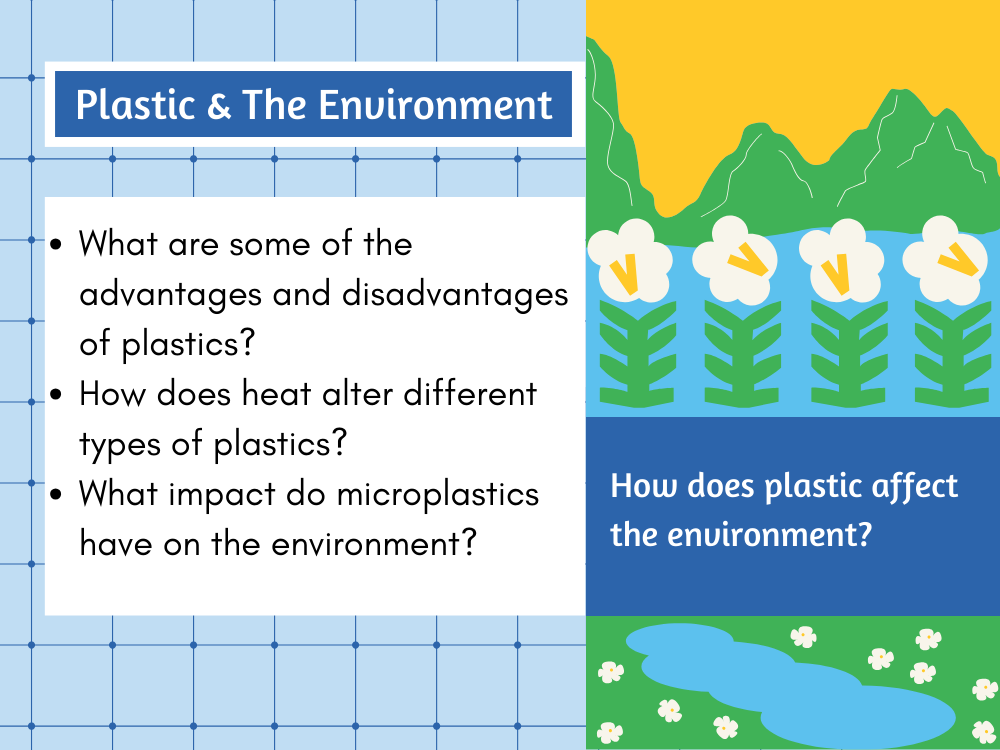
The classroom’s role in empowering the future climate workforce
contributed by Bob Powell , founder and CEO, Brightmark
The world is amid a climate crisis that demands urgent action.
Around the globe, members of the United Nations are striving toward 17 Sustainable Development Goals, including affordable and clean energy, sustainable cities and communities, and climate action. In a month’s time, world leaders will convene in Dubai for COP28 to discuss global progress toward climate resolutions. Domestically, businesses are feeling the pressure to respond as well. Up until this point, companies have not been made accountable for the commitments they have made. That all is changing.
Organizations across sectors are expected to incorporate environmental factors into their short and long-term decision-making process, and as a climate emergency becomes more apparent with every natural disaster and global headline, the world needs a workforce equipped with the understanding and skills to guide the planet toward a better future.
The process of addressing this needs to start in the classroom. Yet, the challenge lies in the potential obsolescence of current educational resources, such as state standards and textbooks, which may become outdated almost as soon as they are published. It needs to be ensured that teachers have access to relevant and up-to-date climate-focused curriculum created and vetted by trusted experts and organizations.
See also What Are Mindfulness Skills?
But it’s not enough to solely focus on science to discuss climate change concepts. This sort of systems-level thinking should permeate subjects like math, history, social studies, and technology. Students must see every part of their education through the lens of climate change to fully understand its importance and develop the critical skills needed to drive meaningful environmental change.
A workforce in transition
The 2023 Global Green Skills Report from LinkedIn revealed that only one in eight workers worldwide have one or more green skills, and the growth in job postings requiring at least one of these skills saw a median increase of 15.2 percent from 2022 to 2023. According to analysis from Lightcast and WorkingNation , there has been a 50 percent increase in the number of green jobs, and occupations that contribute to preserve or restore the environment as defined by the International Labour Organization, since 2019.
These findings emphasize the growing importance of preparing our students for the jobs of the future, those that will require a deeply nuanced understanding of climate-related issues.
Climate change is reshaping multiple sectors all at once, including the energy sector, with the emergence of government regulations focused on reducing fossil fuel dependency to support the transition to clean energy.
Other industries like agriculture and transportation are currently experiencing significant transformations as a direct result of climate change.
Climate change is altering growing seasons, impacting livestock health, and causing widespread soil degradation. Warmer temperatures are affecting the agricultural industry by speeding up the growth of certain crops and simultaneously limiting yields for crops like grains—potentially resulting in elevated food prices and significant economic losses in regions that rely on them. Because of this, the agricultural workforce of the future would benefit from more technical expertise like climate science and weather forecasting, soil sequestration, and more.
Within the transportation sector, climate change is causing damage to key infrastructure, generating increased energy consumption and emissions, and presenting critical safety risks. At the same time, the industry is undergoing several fundamental transformations, including a notable shift toward producing electric vehicles. Some optimistic projections expect 52 percent of new vehicle sales to be all-electric by 2030. The industry is constantly working to reinvent itself as it researches and implements solutions around biogas for methane avoidance, hydrogen fuel cells, and other carbon emission-reducing technologies.
Companies in these sectors and others are recognizing the need for a skilled workforce that is well-equipped in both subject matter knowledge and know-how to address the ever-changing needs of how climate impacts key sectors. To address this, corporations are now looking to schools that are adopting climate-friendly curriculum to create job pipelines for the climate and sustainability workforce of the future.
Placing an early emphasis on climate literacy
With the needs of the future workforce in mind, it is key to introduce students to climate change concepts in early learning and postsecondary education to build the workforce required to transform our economy. Emphasizing climate literacy early can enhance students’ understanding of problem-solving, global citizenship, and informed decision-making.
Incorporating climate literacy concepts into the classroom can be made accessible, fun, and engaging by focusing on simple and familiar concepts. This is why understanding how plastics contribute to climate change is crucial for children–the students in your classroom who will inherit how we respond to these critical challenges.
Here are a series of age-appropriate climate-related topics for classroom discussions, along with corresponding questions to guide the conversation:
Science: 20 Guiding Questions About Plastic And Climate Change
Kindergarten: Sorting plastics
- What do you know about sorting plastic?
- What are the traits of plastic?
- What are the different types of plastic?
- How many different plastics can you find in the classroom?
First Grade: Comparing strengths of different plastics
- What are the properties of plastic?
- What are alternatives to plastic?
- What makes one plastic stronger than another?
- How can we limit our usage of the more harmful types of plastic?
Second Grade: Microplastics
- What are some of the advantages and disadvantages of plastics?
- How does heat alter different types of plastics?
- What impact do microplastics have on the environment?
Third Grade: Impact of plastics on humans and animals
- What do you know about the impacts of plastic on humans and animals?
- What makes a healthy ecosystem?
- How does plastic pollution harm ecosystems?
- Can you think of an example of the negative effects of plastic in our city?
Fourth Grade: Recycling
- How can we improve our school’s recycling processes?
- What are the limitations of plastic recycling?
Fifth Grade: Innovations in recycling technology
- How have recycling processes improved?
- Do you have anything made out of recycled material? Why can recycle some plastics and not others?
- What are the current limitations of recycling technology?
It’s essential that the activities these questions lead to are demonstrative of the effects of pollution and climate change, align with skills that will be necessary for the future workforce and are fun and engaging to foster excitement and interest in making a positive difference on the environment.
However, the reality is that many teachers are stretched extremely thin and focused on leveraging curriculum that closely aligns with state educational standards. Climate change concepts are highly complex and nuanced, and teachers may find it challenging to dedicate the time necessary to acquire in-depth knowledge of this intricate subject matter.
Organizations leading the way
Fortunately, organizations are dedicated to addressing this gap by providing accessible, free educational materials on climate change, which can support teachers in delivering environmental lessons even within the constraints of their busy schedules. Some examples include:
The Ocean First Institute offers in-person and virtual school programs that educate students about the importance of the ocean in our daily lives and aims to expand students’ knowledge of ocean science, marine biology, and conservation.
The University Corporation for Atmospheric Research (UCAR) , a nonprofit consortium of over 100 colleges and universities, provides lessons, curriculum units, and other materials for K-12 students focused on weather, climate, and Earth system science.
The National Oceanic and Atmospheric Administration (NOAA) is a federal agency that provides hundreds of learning activities, toolboxes for teaching climate and energy concepts, and curricula resources.
The Guy Harvey Foundation offers a blended learning model, including online and in-person content and provides professional development opportunities through teacher training workshops.
See also Types Of Blends Learning
These organizations, and many others, lighten the burden on teachers by offering diverse resources and programs that bring climate literacy to the forefront of education, a necessary adjustment to the educational pipeline to ensure that students are well-prepared for the climate-focused workforce of the future.
By enhancing our educational approach and ensuring that these essential resources are available to everyone, we can pave the way for a brighter and more sustainable future, where individuals are well-equipped to address climate-related issues and actively contribute to meaningful change.
TeachThought is an organization dedicated to innovation in education through the growth of outstanding teachers.

Climate Change: Evidence and Causes: Update 2020 (2020)
Chapter: conclusion, c onclusion.
This document explains that there are well-understood physical mechanisms by which changes in the amounts of greenhouse gases cause climate changes. It discusses the evidence that the concentrations of these gases in the atmosphere have increased and are still increasing rapidly, that climate change is occurring, and that most of the recent change is almost certainly due to emissions of greenhouse gases caused by human activities. Further climate change is inevitable; if emissions of greenhouse gases continue unabated, future changes will substantially exceed those that have occurred so far. There remains a range of estimates of the magnitude and regional expression of future change, but increases in the extremes of climate that can adversely affect natural ecosystems and human activities and infrastructure are expected.
Citizens and governments can choose among several options (or a mixture of those options) in response to this information: they can change their pattern of energy production and usage in order to limit emissions of greenhouse gases and hence the magnitude of climate changes; they can wait for changes to occur and accept the losses, damage, and suffering that arise; they can adapt to actual and expected changes as much as possible; or they can seek as yet unproven “geoengineering” solutions to counteract some of the climate changes that would otherwise occur. Each of these options has risks, attractions and costs, and what is actually done may be a mixture of these different options. Different nations and communities will vary in their vulnerability and their capacity to adapt. There is an important debate to be had about choices among these options, to decide what is best for each group or nation, and most importantly for the global population as a whole. The options have to be discussed at a global scale because in many cases those communities that are most vulnerable control few of the emissions, either past or future. Our description of the science of climate change, with both its facts and its uncertainties, is offered as a basis to inform that policy debate.
A CKNOWLEDGEMENTS
The following individuals served as the primary writing team for the 2014 and 2020 editions of this document:
- Eric Wolff FRS, (UK lead), University of Cambridge
- Inez Fung (NAS, US lead), University of California, Berkeley
- Brian Hoskins FRS, Grantham Institute for Climate Change
- John F.B. Mitchell FRS, UK Met Office
- Tim Palmer FRS, University of Oxford
- Benjamin Santer (NAS), Lawrence Livermore National Laboratory
- John Shepherd FRS, University of Southampton
- Keith Shine FRS, University of Reading.
- Susan Solomon (NAS), Massachusetts Institute of Technology
- Kevin Trenberth, National Center for Atmospheric Research
- John Walsh, University of Alaska, Fairbanks
- Don Wuebbles, University of Illinois
Staff support for the 2020 revision was provided by Richard Walker, Amanda Purcell, Nancy Huddleston, and Michael Hudson. We offer special thanks to Rebecca Lindsey and NOAA Climate.gov for providing data and figure updates.
The following individuals served as reviewers of the 2014 document in accordance with procedures approved by the Royal Society and the National Academy of Sciences:
- Richard Alley (NAS), Department of Geosciences, Pennsylvania State University
- Alec Broers FRS, Former President of the Royal Academy of Engineering
- Harry Elderfield FRS, Department of Earth Sciences, University of Cambridge
- Joanna Haigh FRS, Professor of Atmospheric Physics, Imperial College London
- Isaac Held (NAS), NOAA Geophysical Fluid Dynamics Laboratory
- John Kutzbach (NAS), Center for Climatic Research, University of Wisconsin
- Jerry Meehl, Senior Scientist, National Center for Atmospheric Research
- John Pendry FRS, Imperial College London
- John Pyle FRS, Department of Chemistry, University of Cambridge
- Gavin Schmidt, NASA Goddard Space Flight Center
- Emily Shuckburgh, British Antarctic Survey
- Gabrielle Walker, Journalist
- Andrew Watson FRS, University of East Anglia
The Support for the 2014 Edition was provided by NAS Endowment Funds. We offer sincere thanks to the Ralph J. and Carol M. Cicerone Endowment for NAS Missions for supporting the production of this 2020 Edition.
F OR FURTHER READING
For more detailed discussion of the topics addressed in this document (including references to the underlying original research), see:
- Intergovernmental Panel on Climate Change (IPCC), 2019: Special Report on the Ocean and Cryosphere in a Changing Climate [ https://www.ipcc.ch/srocc ]
- National Academies of Sciences, Engineering, and Medicine (NASEM), 2019: Negative Emissions Technologies and Reliable Sequestration: A Research Agenda [ https://www.nap.edu/catalog/25259 ]
- Royal Society, 2018: Greenhouse gas removal [ https://raeng.org.uk/greenhousegasremoval ]
- U.S. Global Change Research Program (USGCRP), 2018: Fourth National Climate Assessment Volume II: Impacts, Risks, and Adaptation in the United States [ https://nca2018.globalchange.gov ]
- IPCC, 2018: Global Warming of 1.5°C [ https://www.ipcc.ch/sr15 ]
- USGCRP, 2017: Fourth National Climate Assessment Volume I: Climate Science Special Reports [ https://science2017.globalchange.gov ]
- NASEM, 2016: Attribution of Extreme Weather Events in the Context of Climate Change [ https://www.nap.edu/catalog/21852 ]
- IPCC, 2013: Fifth Assessment Report (AR5) Working Group 1. Climate Change 2013: The Physical Science Basis [ https://www.ipcc.ch/report/ar5/wg1 ]
- NRC, 2013: Abrupt Impacts of Climate Change: Anticipating Surprises [ https://www.nap.edu/catalog/18373 ]
- NRC, 2011: Climate Stabilization Targets: Emissions, Concentrations, and Impacts Over Decades to Millennia [ https://www.nap.edu/catalog/12877 ]
- Royal Society 2010: Climate Change: A Summary of the Science [ https://royalsociety.org/topics-policy/publications/2010/climate-change-summary-science ]
- NRC, 2010: America’s Climate Choices: Advancing the Science of Climate Change [ https://www.nap.edu/catalog/12782 ]
Much of the original data underlying the scientific findings discussed here are available at:
- https://data.ucar.edu/
- https://climatedataguide.ucar.edu
- https://iridl.ldeo.columbia.edu
- https://ess-dive.lbl.gov/
- https://www.ncdc.noaa.gov/
- https://www.esrl.noaa.gov/gmd/ccgg/trends/
- http://scrippsco2.ucsd.edu
- http://hahana.soest.hawaii.edu/hot/
| was established to advise the United States on scientific and technical issues when President Lincoln signed a Congressional charter in 1863. The National Research Council, the operating arm of the National Academy of Sciences and the National Academy of Engineering, has issued numerous reports on the causes of and potential responses to climate change. Climate change resources from the National Research Council are available at . | |
| is a self-governing Fellowship of many of the world’s most distinguished scientists. Its members are drawn from all areas of science, engineering, and medicine. It is the national academy of science in the UK. The Society’s fundamental purpose, reflected in its founding Charters of the 1660s, is to recognise, promote, and support excellence in science, and to encourage the development and use of science for the benefit of humanity. More information on the Society’s climate change work is available at |

Climate change is one of the defining issues of our time. It is now more certain than ever, based on many lines of evidence, that humans are changing Earth's climate. The Royal Society and the US National Academy of Sciences, with their similar missions to promote the use of science to benefit society and to inform critical policy debates, produced the original Climate Change: Evidence and Causes in 2014. It was written and reviewed by a UK-US team of leading climate scientists. This new edition, prepared by the same author team, has been updated with the most recent climate data and scientific analyses, all of which reinforce our understanding of human-caused climate change.
Scientific information is a vital component for society to make informed decisions about how to reduce the magnitude of climate change and how to adapt to its impacts. This booklet serves as a key reference document for decision makers, policy makers, educators, and others seeking authoritative answers about the current state of climate-change science.
READ FREE ONLINE
Welcome to OpenBook!
You're looking at OpenBook, NAP.edu's online reading room since 1999. Based on feedback from you, our users, we've made some improvements that make it easier than ever to read thousands of publications on our website.
Do you want to take a quick tour of the OpenBook's features?
Show this book's table of contents , where you can jump to any chapter by name.
...or use these buttons to go back to the previous chapter or skip to the next one.
Jump up to the previous page or down to the next one. Also, you can type in a page number and press Enter to go directly to that page in the book.
Switch between the Original Pages , where you can read the report as it appeared in print, and Text Pages for the web version, where you can highlight and search the text.
To search the entire text of this book, type in your search term here and press Enter .
Share a link to this book page on your preferred social network or via email.
View our suggested citation for this chapter.
Ready to take your reading offline? Click here to buy this book in print or download it as a free PDF, if available.
Get Email Updates
Do you enjoy reading reports from the Academies online for free ? Sign up for email notifications and we'll let you know about new publications in your areas of interest when they're released.
- India Today
- Business Today
- Harper's Bazaar
- Brides Today
- Cosmopolitan
- India Today Hindi
- Reader’s Digest
- Aaj Tak Campus
Climate change, extreme weather: What made Wayanad landslides so deadly
The state has witnessed a steady rise in extreme weather events over the past decade, including Cyclone Ockhi in 2017 and devastating floods in 2018 and 2019.
Listen to Story

- Frequency and intensity of extreme monsoon downpours in India have increased
- The Western Ghats is classified as an ecologically fragile region
- Trends indicate that extreme rainfall events are likely to continue increasing
Kerala's Wayanad district has been struck by one of the most devastating landslides in recent memory, triggered by incessant monsoon rains.
The tragedy, which unfolded in the early hours of July 30, 2024, has claimed over 150 lives and left many injured, with the death toll expected to rise further as rescue operations continue.

MANY FACTORS TO BLAME
The role of unplanned development in exacerbating these climate-induced disasters cannot be overlooked.
Professor Y P Sundriyal from HNB Garhwal University emphasised the need for scientifically sound construction techniques in mountainous regions, highlighting the current gap between planning and implementation.
The Western Ghats, classified as an ecologically fragile region, have seen significant land-use changes.

By Maggie Astor
- Aug. 6, 2024
Gov. Tim Walz of Minnesota, the newly announced running mate to Vice President Kamala Harris, has worked with his state’s Democratic-controlled Legislature to enact an ambitious agenda of liberal policies: free college tuition for low-income students, free meals for schoolchildren, legal recreational marijuana and protections for transgender people.
“You don’t win elections to bank political capital,” Mr. Walz wrote last year about his approach to governing. “You win elections to burn political capital and improve lives.”
Republicans have slammed these policies as big-government liberalism and accused Mr. Walz of taking a hard left turn since he represented a politically divided district in Congress years ago.
Here is an overview of where Mr. Walz stands on some key issues.
Mr. Walz signed a bill last year that guaranteed Minnesotans a “fundamental right to make autonomous decisions” about reproductive health care on issues such as abortion, contraception and fertility treatments.
Abortion was already protected by a Minnesota Supreme Court decision, but the new law guarded against a future court reversing that precedent as the U.S. Supreme Court did with Roe v. Wade, and Mr. Walz said this year that he was also open to an amendment to the state’s Constitution that would codify abortion rights.
Another bill he signed legally shields patients, and their medical providers, if they receive an abortion in Minnesota after traveling from a state where abortion is banned.
We are having trouble retrieving the article content.
Please enable JavaScript in your browser settings.
Thank you for your patience while we verify access. If you are in Reader mode please exit and log into your Times account, or subscribe for all of The Times.
Thank you for your patience while we verify access.
Already a subscriber? Log in .
Want all of The Times? Subscribe .

COMMENTS
Essay On Climate Change in 100 Words. Climate change refers to long-term alterations in Earth's climate patterns, primarily driven by human activities, such as burning fossil fuels and deforestation, which release greenhouse gases into the atmosphere. These gases trap heat, leading to global warming. The consequences of climate change are ...
Start with a Quote. Find out a famous person who has touched the discussed issue. Make your audience mull over his/her words as well as provide their own thoughts. Start with a quote: "Climate change is happening, humans are causing it, and I think this is perhaps the most serious environmental issue facing us."-Bill Nye.
Climate change refers to the change in the environmental conditions of the earth. This happens due to many internal and external factors. The climatic change has become a global concern over the last few decades. Besides, these climatic changes affect life on the earth in various ways. These climatic changes are having various impacts on the ...
Good. 3 pages / 1352 words. Introduction Climate change, driven predominantly by the excessive emission of carbon dioxide from the burning of fossil fuels, is undeniably one of the most pressing global issues of the world today. This essay delves into the multifaceted nature of climate change in the 21 century,...
Climate Explained, a part of Yale Climate Connections, is an essay collection that addresses an array of climate change questions and topics, including why it's cold outside if global warming is real, how we know that humans are responsible for global warming, and the relationship between climate change and national security.
Here is a collection of selected Learning Network and New York Times resources for teaching and learning about climate change. From The Learning Network, there are lesson plans, writing prompts ...
Craft the outline and don't go off-topic. Search for keywords. Make a plan. Avoid the most common mistakes from the start. Write an introduction thinking about what you will write later. Develop your ideas according to the outline. Make a conclusion which is consistent with what you've written in the main paragraphs.
Creating the Perfect Essay on Climate Change or Any Environmental Topic. Essay writing is a task which poses an immense challenge to many students. This is because it not only has many requirements, but also requires one to have professional writing skills to produce a top-notch paper. This is especially complicated for climate change papers.
Climate Explained is a collection of short primers that answer diverse climate change questions, including why it's cold outside if global warming is real, how we know that humans are responsible for global warming, and the relationship between climate change and national security. Image 1. Example Climate Explained essays on the Yale Climate ...
200 Words Essay on Climate Change. The climate of the Earth has changed significantly over time. While some of these changes were brought on by natural events like volcanic eruptions, floods, forest fires, etc., many of the changes were brought on by human activity. The burning of fossil fuels, domesticating livestock, and other human ...
500+ Words Essay on Climate Change. Climate change is a major global challenge today, and the world is becoming more vulnerable to this change. Climate change refers to the changes in Earth's climate condition. It describes the changes in the atmosphere which have taken place over a period ranging from decades to millions of years.
Climate Change and Global Warming Essay. Global Warming and Climate Change are two sides of the same coin. Both are interrelated with each other and are two issues of major concern worldwide. Greenhouse gases released such as carbon dioxide, CFCs, and other pollutants in the earth's atmosphere cause Global Warming which leads to climate ...
The Economist 's Open Future essay competition asked people between 16 and 25 years old to answer the question: "What fundamental economic and political change, if any, is needed for an effective response to climate change?". Entrants had 1,000 words. (The shortest essay took just two: "Abolish capitalism".)
Climate change is defined as "a pattern of change affecting global or regional climate," based on "average temperature and rainfall measurements" as well as the frequency of extreme weather events. 1 These varied temperature and weather events link back to both natural incidents and human activity. 2 Likewise, the term global warming ...
Here are 15 of our favorite writings on climate — this eclectic list contains books, essays, a newsletter, a scientific paper, even legislation and they're all ones we wholeheartedly recommend. All We Can Save: Truth, Courage, and Solutions for the Climate Crisis coedited by Ayana Elizabeth Johnson and Katharine Wilkinson.
Essay and Discussion Questions from Climate & Energy. Climate Change High School Questions. Print. Help students understand how climate change poses an extraordinary threat to the planet and its inhabitants through these essay and discussion questions. Introduction.
Climate Change The world's ecological issues have been studied intensely by scientists in various academic disciplines vigorously for many years and have been greatly accelerated in recent decades. The level of understanding about how natural systems on the planet operate has become immensely sophisticated. Although there are still some issues that remain puzzling, on the whole, scientists ...
Persuasive Essay On Climate Change. years climate change has been a controversial issue affecting individuals worldwide; climate change has been debated by scientists including the rest of the world. Many factors can affect climate change such as biological factors and human actions. The intricate details are what go unnoticed and unmanaged ...
The goal of the climate action taken by governments and societies around the world is to reach "net zero.". That's the state where no more carbon dioxide and other greenhouse gas emissions are going into the atmosphere than can be taken out, and it means cutting emissions to as close to zero as possible.
Essay Writing Service. There are two main causes of climate changes - natural causes and human activities. Natural causes have influenced the earth's climates such as volcanic eruptions, ocean current, the earth's orbital changes and solar variations. The eruptions of volcanoes cause a cooling effect on the earth.
The classroom's role in empowering the future climate workforce. contributed by Bob Powell, founder and CEO, Brightmark. The world is amid a climate crisis that demands urgent action. Around the globe, members of the United Nations are striving toward 17 Sustainable Development Goals, including affordable and clean energy, sustainable cities and communities, and climate action.
This essay is part of What to Eat on a Burning Planet, a series exploring bold ideas to secure our food supply. Read more about this project in a note from Eliza Barclay, Opinion's climate ...
Guest Essay. There's a New Reason to Save Life in the Deep Ocean. July 29, 2024. ... He spent the last three years reporting on climate change and its effect on the oceans and extreme weather.
C ONCLUSION. This document explains that there are well-understood physical mechanisms by which changes in the amounts of greenhouse gases cause climate changes. It discusses the evidence that the concentrations of these gases in the atmosphere have increased and are still increasing rapidly, that climate change is occurring, and that most of ...
Climate scientists attribute this trend to human-induced climate change, which has led to an increase in extreme rainfall events (EREs) associated with monsoons, thunderstorms, and localized cloudbursts. Mariam Zachariah, Research Associate at Imperial College London, explains that climate change is drastically altering Wayanad's rainfall patterns.
Guest Essay 'Twisters' Was a Spectacle That Missed a Huge Opportunity. July 29, 2024. ... the Yale Program on Climate Change Communication found that 62 percent of registered voters ...
As governor of Minnesota, he has enacted policies to secure abortion protections, provide free meals for schoolchildren, allow recreational marijuana and set renewable energy goals.